🎗️Lonny's War Update- October 698, 2023 - September 3, 2025 🎗️
🎗️Day 698 that 48 of our hostages are still in Hamas captivity🎗️
CNN Interview with Dr. Gershon Baskin - interview
Education official tells Jerusalem students that protests for hostages ‘harm national unity’
With the opening of the school year, a top education official has pressed students not to hold protest events demanding a deal to return hostages in Gaza, claiming this would “harm national unity.”
Carmit Harush, director of the Jerusalem District in the Education Ministry, said in a letter to student councils in the district that their efforts would be better spent “following a path of supporting the state, strengthening IDF soldiers, boosting national morale and engaging in positive advocacy.”
“A path of protest,” Harush argued, “mainly harms national unity.”
Harush suggested that students “hold dialogue circles in order to plan positive and constructive activities that will allow us to create joint positive influence in favor of the hostages’ return and the war’s conclusion with victory.”
In a statement to Haaretz, the ministry said, “The letter was intended to anchor the discourse around the hostages and to emphasize the importance of making the yearning for their return a values-based discussion and social action within educational frameworks.” link This 'Education official' knows nothing about education and knows even less about national unity. She is mimicking the weakling Education Minister who is another of Netanyahu's yes men. If either of them understood national unity, they would recognize that getting the hostages home is the most important thing for the nation to heal and begin to rebuild the country after this government abandoned the entire country before October 7. They conveniently ignore the fact that the majority of the population wants the hostages home even at the price of ending the war, which in any case is still going on for Netanyahu's political survival.
If they understood the importance of the students that are protesting, they would look at them with great pride for standing up for their civic ideals and values and recognize the most important values that are instilled in all of us from childhood that we don't leave anyone behind and the most important mitzvah (deed) is to redeem prisoners no matter what the price. Unfortunately, we have a Minister of Education who calls the police on demonstrators who stand near his home and call out the names of the hostages. He plays loud music to drown out the names and calls the police. This is the person in charge of the education of our children? DISGRACE!!!!- 'Let leaders decide who in their family will suffer hunger and torture in a tunnel—or take their place'
At their son’s first memorial in Jerusalem, Rachel Goldberg-Polin and Jon Polin saw Israelis from all walks of life gather; Hersh, killed a year ago in a Gaza tunnel with five hostages, is remembered for his smile; Parents urge the government to seize a hostage deal and honor victimsThe grief clock of Rachel Goldberg-Polin and Jon Polin counts its beats in time units that only they know, reminding them after a full year of the fate of "six beautiful souls" including their Hersh who were returned to burial in Israel after being murdered in Hamas captivity.It counts with horrifying precision the weight of their son who stood 6 feet tall and was brought to burial weighing 52 kilograms, the days that passed since he was dragged wounded and bleeding from a party that became a massacre, the IDF soldiers who fell defending the homeland, the number of war days that have not come to an end, and in quiet defiance on their shirt collar - the 688 days, correct as of Monday's interview, in which 20 hostages have been suffering underground in Gaza.
Despite the painful counts throughout all hours of the day, they don't try to escape from words and position themselves in a kind of sacred anxiety before fateful questions imposed on them like the reality they didn't ask for themselves since that cursed morning, when terrified children huddled in a shelter that became a death trap. They don't have the privilege to search for an escape route from the calendar that closes in on them with news of the approaching operation to conquer Gaza City on one hand, and with the first memorial for the day their son was murdered by his captors on the other.The thought of IDF forces once again approaching an area that endangers hostages, parallel to dozens of memorial events for Hersh, who has meanwhile become a Jerusalem icon whose face is familiar in every home in Israel, traps them like tongs moving without prior warning. Nevertheless, they are ready to deal with every question, if only for the small chance it will awaken those who need to hear: "We can make a deal to bring home our loved ones, our children, our family members, we can bring them home now," says Jon in a quiet and measured voice, "but if you are an influential person around decision-makers or a member of this government, and you don't want to bring home these people we can return - then take your children, put them there instead of Matan and Avitar and Rom and Eitan and all of them, and then go and bother to make a deal. The people have been there 688 days, and their families have already paid a high enough price, so let's stop torturing them." Rachel continues: "The hostages and their families have served their time, and if someone from the leadership feels that someone needs to be in those tunnels, hungry, filthy, hungry, and tortured - they can choose people from their own families, or go there themselves in their place." Are you worried this might happen again, that the IDF will approach, and God forbid, hostages will be executed? "When it was revealed that Hersh and five beautiful souls were killed, there were some in Israel who were surprised," says Jon, "by various things: that it happened, that Eden Yerushalmi weighed 36 kilos and Hersh weighed 52 kilos, and so on. They shouldn't have been surprised. They knew the hostages were being tortured and starved, and they should have recognized the risk when hostages are held for 11 months by a terror organization, and the terror organization might decide to execute them. So no one should have been surprised, but today? Certainly and definitely no one can claim they are surprised." What do you know today that we didn't know a year ago? "We know much more," says Rachel. "We heard from all the hostages who came out in January and February, we met Or Levy, Eli Sharabi, Ohad Ben-Ami, we heard testimonies firsthand, and we know what's happening inside the tunnels today. Let's not let anyone pretend they don't know what's happening there." And there's what the government says publicly, like Minister Amichai Eliyahu, who suggested treating hostages as prisoners of war. Many Israelis also think it's impossible to sacrifice the future of an entire people for 20 people, that the fate of the nation cannot be decided because of the narrow consideration of 20 hostages, and that borders must be strengthened through settlement. "To sacrifice even one person is a Torah prohibition. A prohibition of child sacrifice to Molech," says Rachel. "To decide that I sacrifice one child for a hundred million people, that's a Torah prohibition, certainly someone else's child - so that's not a choice they can make." And Jon adds, "To try to use hostages as an excuse to do something for Israel's security is an insult. Look what happens to the State of Israel when we sit here shouting at each other and arguing whether to save the lives of our brothers and sisters and loved ones. For 76 years, the State of Israel has done crazy, difficult, challenging, dangerous, and creative things to save our people, and now they're just reacting to Hamas proposals. If someone wants to go and implement what they think should be done to conquer Gaza or anything else, that's a separate issue, and only after we bring home our people who can still be saved. Hostages cannot be an excuse for implementing someone else's political plan, that's not what we do as Israelis, that's definitely not what we did in the first 76 years, and I hope that's not who we've become now." The year that passed since they received the news of death in their home hasn't distanced them from the scene, and they still dedicate most of their time to the struggle: "On October 7, one part of our life ended," says Rachel, "and we call it 'the before,' and since then we're in 'the after.' In the past year, when Hersh and five beautiful souls were killed, we moved to a track even further away from the planet we were thrown to when he was kidnapped, but our goals remained the same: to bring these precious ones home. "And unfortunately, after 688 days, there are still 50 people we need to bring back, so we've been doing this full-time since October 7, 2023. We have a community and dear close friends who hold us. We don't have here in Israel the extended family structure that many people were blessed with. Since the end of 2023, the headquarters has been a kind of home for us; it's natural for us to continue coming there and doing advocacy for the hostages abroad, mainly in English. We sometimes do things very publicly and sometimes very quietly, because both are needed, unfortunately." (Photo: Michal Chelbin for TIME) The quiet tone of the Goldberg-Polin couple and also their clear preference to be interviewed in English, are the only two elements that remind us they weren't born into Israeliness. After 17 years in the country, they're confident enough to call themselves "new immigrants," demonstrate perfect familiarity with military acronyms, and maintain throughout the country a large network of friends who immigrated parallel to them. They inquire about mutual acquaintances in a religious kibbutz, remember stories of Hersh and his sister when they returned from Shlichut full of experiences from "summer in kibbutz," and stop the conversation when I tell them about two friends of the girl who were murdered at Nova. "What are their names?" Shem and Shenhav. "Family name Yaakov," they immediately remember and add: "They were in the death shelter. Their nephew was also murdered, 18 years old." They know every name and every family, remember everyone, and can say something about them. Where they were kidnapped from, where they were murdered, and how long they were held in captivity. The conversation with them flows but is measured. They remind me at the beginning of the interview that they have no interest in talking politics, only to ensure no parent goes through what they went through. They rarely smile but aren't sunk in mourning, submit kindly to the photographer despite the difficulty of detaching from the painful conversation, and later ask in a moving WhatsApp message to thank and apologize for being brief in time due to a packed schedule of memorial events. "I think our strength comes from a different voice," says Rachel. "It's a voice that doesn't scream, point, blame, shout. It's a tsunami of whispers. There's power in it. It causes change. Thousands have approached us to say that for the first time, they see things differently, because they hear about what's common to all of us from the way we talk about our experience. And we don't lose hope. Redemption happens drop by drop; it takes time. We continue Hersh, act in his way and hope that some of this light will reach the people of Israel and heal them." The Hamas tunnel in Rafah where bodies of six murdered hostages were found (Photo: IDF) Their terrible wound from the day of kidnapping was reopened savagely on August 31, 2024, when IDF forces maneuvering in Rafah searched a tunnel and found inside the bodies of Eden Yerushalmi, Ori Danino, Alex Lobanov, Almog Sarusi, Carmel Gat, and Hersh, their son, may their memory be blessed. Four days earlier, IDF forces found and rescued hostage Farhan Qadi in the same area, which led to difficult questions regarding the IDF's combat objectives. Investigation of the incident by the IDF revealed that Hamas lookouts spotted IDF forces approaching the tunnel and ordered the terrorists to murder the six hostages. Based on forensic examination results, it was estimated that the terrorists shot the six hostages to death with several shots from close range, and that the hostages were murdered approximately 48-72 hours before their examination. Examination of the bodies found gunshot wounds to the heads and other places, and autopsy revealed they were systematically neglected and starved. Evidence of previous injuries was also found on the six; binding marks were found on one, and on all of them, signs of time underground and inside a narrow, low tunnel were apparent. Initially, approached, Hamas denied murdering the hostages and claimed they were killed by Israeli bombing, but later admitted indirectly that it gave instructions to murder hostages when IDF forces approached.From top left: Ori Danino, Eden Yerushalmi, Hersh Goldberg-Polin, Alex Lobanov, Carmel Gat and Almog Sarusi Since October 7, their parental status changes constantly and with cruelty characteristic of the Gazan terror organization that held their son and is responsible for his death. From an average family of parents to three, they became parents to two daughters, Libby and Orly, and to the kidnapped son, Hersh, whose hand was amputated and documented during his kidnapping to Gaza. Rachel suddenly became the mother of a hostage who gave a powerful and inspiring speech at the UN assembly two weeks after the kidnapping. Suddenly, they became parents to two and to a hostage, from whom signs of life arrived, and who was filmed by Hamas begging "stay strong for me." And finally, why are they parents to two daughters and a son, who was one of six hostages murdered a year ago: "We also try to remember that we're in a completely different place now," says Rachel, "that we're 'next to' hostage families, because, yes, we got our hostage back. Not as we prayed and hoped and yearned and worked for him, but we have Hersh. We have a place where we were able to bury him, which we can go to. We want everyone alive to return home. And for the beloved souls who are not alive, that their families will have the place we have, which is a terrible and sickening thing; it doesn't make you feel better, but it's something." With no small part of the hostage families, they're still in contact, seeing up close the continuation of the nightmare as reflected in the bitter fate of others: "Their pain is so tormenting, like skin that's been torn off. Every parent who lost their child is in another kind of torture, but the torture that these parents, whose children are still there for another year, go through, and families like Rom's, Avitar's, and Matan's, who recently saw photos of their children suffering so terribly, we never had that. We imagined it. So you know, our heart is on the floor for them." Tens of thousands of reserve duty orders were sent this week to reserve soldiers ahead of the conquest of Gaza, and the plans have already been approved despite opposition from the Chief of Staff. Currently it appears that on September 4 the conquest of Gaza will begin, and despite the military's reservations and the people's opposition, the government continues as if nothing has changed from a year ago. Jon: "A year ago, the story was Rafah, now the story is Gaza City, and as Rachel tends to say - and this was relevant a year ago and today too, at the beginning of Elul - 'This is the time to look inside ourselves as individuals and as a people and ask, what can we do differently? What can we do better? How can we learn from things we did wrong?' We know what happened in the tunnel, in Rafah, to six beautiful people;;e, we have an opportunity now to do something different. Will we do it?" Jon's question doesn't remain in the air; Rachel catches it quickly: "Rambam says this is the true essence of repentance, to put yourself in the same situation and choose the choice you missed the previous time. 'Sin' means to miss the target, okay? It's very human to miss, but when we're put in the same situation, we have the ability and opportunity to correct. So now this is our real opportunity to choose what we missed a year ago." But 688 days that the government doesn't make the right choice, and it seems the only act is preferring military force over negotiation and diplomatic moves. It seems, at least currently, they don't really connect to ideas like repentance and soul-searching. "I think we learned that there are always conversations taking place," says Rachel, "we don't always know what's happening, and we learned a lot about the essence precisely through how it's presented in the media. When there's a lot of choreography and theatrics and drama in the media, it doesn't always indicate that things are happening behind closed doors, and vice versa. Sometimes we were told things whose natural response would be to say: 'What, dear Go, ', and we learned to tell ourselves, 'Wait, take a breath, what's actually happening he. ' Because we were in many of those rooms with other hostage families and heard one thing, left the room, and within minutes saw something else printed, and we had to understand for ourselves what was really happening. Unfortunately, we're not always in on the secret, not always given the precise truth, and that's something we didn't know in real time. It's part of our awakening." So how are family members of a hostage supposed to know where the truth is? According to investigations, including in the New York Times, more than once, Netanyahu torpedoed a hostage deal because he preferred hardening positions and military action for his own reasons. "As parents, we don't know what decision-makers are really doing," says Jon, "but we can demand they pull our forces back, and remind everyone that even before we entered and began military pressure, we said it's not the final goal, it's a tool to weaken Hamas and prevent it from becoming a ruling power. 688 days in - I'll just remind, when we think about military pressure, to ask whether it achieves these two goals - or have we lost our way?" Interestingly, the people in government who would argue with you about Zionists are precisely religious Zionists like you who define themselves as religious Zionists. With the ultra-Orthodox, it's easier on this matter, because they've already announced they'll vote for any hostage deal brought before them. When Rachel talks about Torah prohibition, they're aware of this, and yet apparently won't agree with you. Jon: "We all make assumptions based on external appearance. Does the man wear a kippah? What color? What size? I know wearers of large black kippahs with black hats on them, and they're wonderful, and I know some who are less wonderful. And I know people who don't wear kippahs, and they're wonderful, and some are less wonderful. I understand that. We want to talk about the thousands of ultra-Orthodox and secular, and religious, and Arabs who came to Hersh's funeral." And Rachel adds: "Jon specifically is a Zionist and religious, wears a kippah, prays three times a day, washes hands before eating bread and says grace after meals, and all the things that on the surface make people think you're religious, despite us knowing well the recommendation 'don't look at the jug but at what's in it'. This is no small challenge for us. We don't want to make this about what Kippahs. What are people's views on redeeming captives, for example. One of the things that became very clear to me during the struggle to return Hersh and the other hostages is that we live in a world where you are not what you say, and you are not what you think, and you're not even what you believe in. In this world, we are what we do, period, end of sentence, that's it. (Photo: Nachum Segal) "Years ago, I worked as a student on a hotline for women who suffered violence from their partner and called to ask for help and support. We tried to help them leave, and they didn't want to. They said things like 'but he loves me. He tells me he loves me. I answered, 'Okay, he told you. '. 'And then she said, 'No. I know he loves me. I answered: 'Okay, you know he loves you, you think and believe he loves you, but he hits you and that's all that matters'. We witnessed this dozens of times in closed rooms, when families cry with us, and they tell us they believe redeeming captives is most important. Don't tell me what you believe, unless you're going to act on it. Actions, actions. If you don't do it, it doesn't count. We are what we do, so I think we need to be very careful because our children see this. The state sees it, the world sees it, and God sees it; we need to be very careful about what we choose to do. They're watching us. And what we do with this is what they'll remember." Jerusalemites knew Hersh long before he was kidnapped to Gaza. He created rare friendships based on love for his team, Hapoel Jerusalem, met people at colorful nature parties, collected friends from social and community activity - from demonstrations for LGBT rights to graffiti in favor of refugees, and kept soul friends from the religious high school Himmelfarb, where he studied. Initially, as part of the struggle for his release and later on the path to commemorating him, the public in Israel and even in the world also learned to know the living, laughing, "tactless" Hersh, as his friends told at the memorial, and full of life that we will no longer get to know. They were all there last week at the square of "Shevet Metzada" in the Crossroads Valley, young people with kippahs alongside cap wearers, adults in kippahs alongside bareheaded secular people, women wrapped in shawls alongside women dressed in pants, soldiers in uniform and weapons alongside ultra-Orthodox scholars, and the religious scout members, Hersh's friends, who surrounded Rachel, Jon and the girls and sang: "Who is the man who desires life, loves days to see good," in a clear Jerusalem twilight hour. But before he belonged to everyone, Hersh Goldberg-Polin belonged to his parents and sisters, and they are the ones who carry the weight of longing for him, remember the daily greatness of soul, and the talent for not hurting his loved ones even when he insisted on going his special way. (Photo: sina Schuldt) Like then, when he came to tell them about his relationship with religion: "Hersh was religious until high school," says Rachel, "and when he was in the army, he told us, 'I'm not going to keep Shabbat like you', and it was very painful to hear. I didn't grow up religious, and as a parent, you choose a path that is so meaningful and valuable and dear to you, and you try to give it to your children, and when they say, 'You know, mom, this doesn't speak to me, 'it's very hard. But in the same breath, he said, 'But I will always be respectful and behave respectfully. ' I asked him, 'How will this work?' We're a family that goes together to synagogue both Friday evening and Saturday morning. And he continued to always come with us." Hersh continued the tradition he promised his parents, even when he enlisted in armor. "It's not easy. Tash [armor training] is no joke," she laughs, "you come home once every three weeks, and finally can see your friends. Hersh would come with us on Friday evening to the synagogue, and the morning is harder. We hear him coming in at four or five in the morning from his friends, and I say to Jon, 'Yeah, right. Come on, do you think he'll go with us to synagogue?' After several years, I asked him how he continues to come with us to synagogue, because I felt how tired he was. And he answered: 'You know, Mom, Dad, I come because I don't want Dad to sit alone in synagogue'. When I told this to a rabbi we know, he said about Hersh: 'He's the most religious person I know', because to do this for 'honor your father and mother', so that his father won't be alone at a time when he doesn't want to go at all, this is the place where you show who you really are. Maybe he didn't keep commandments like others, but the way he did it was such that it continued to show us respect." You talked at the memorial about this small ritual between you, when he would offer to carry your bag. "I miss and love him; he was my son. I admired him, and I still admire him, because these things don't stop, admiration doesn't stop, love doesn't stop. I love him more now than I loved him this morning. It's like bamboo, it continues to grow and doesn't stop. He was always very careful with me, very gentle," she suddenly smiles. "I would tell him he approaches me like Fred Astaire, in a kind of inviting hand movement. No matter what bag I had - on Shabbat it's a really small bag, just with a key and tissue or lipstick, really nothing - he wouldn't give up. It was a symbol of his desire to help me." On protest day last Monday, they were photographed when Jon lifted her on his shoulders, and Rachel stuck a sticker for releasing hostages on a billboard in Tel Aviv. Active participants above the Israeli average, but also much less on the media radar. Their position is clearer than ever, especially toward another protest day in the middle of the week, but they're not ready to judge those who oppose the protest, not from the public and certainly not from hostage families. "Everyone should do what they think can work and what they feel comfortable doing," says Jon, "for some it's protesting, for others it's deep, serious, focused prayer; for others it's committing to do some act in an attempt to bring hostages home, for others it's speaking quietly behind the scenes with leaders. Do what you feel comfortable doing and what you think might have an impact, but if you care about the 50, if you really worry about the 50 hostages and you really believe that we as a people need to bring home these 50, don't sit quietly doing nothing." The spontaneous protest that ignited on the evening of September 1, 2024, the day the murder of the six by their captors was published, proved to them that the Israeli public is attentive and sensitive toward them much more than the government is capable of. "I feel that their murder slowed things down," says Rachel, "and showed that when we were too confident in ourselves and felt we could just continue with military moves, it created a situation that caused these six beautiful people to be killed. Our understanding, even without being military tacticians, is that everything stopped with screeching brakes after the six were killed. We saw this very clearly. We may have talked much more than we do, but the way the military has maneuvered since has completely changed. "I think the death of the six was the greatest nightmare realization for soldiers and commanders - and it doesn't matter who decided to enter the area where they were held. When it became known that Farhan emerged from there 36 hours before, then it was clear there were hostages there. Since then, the military's conduct has been like on tiptoe, quiet, slow, careful, and I think the military is trying to do everything so they never again return more people who were alive in bags." Did you hear the parents of hostages, Avinatan Or's mother and Eitan Mor's father? They spoke a lot this week about protest versus military force, and said basically the opposite of what we're saying here, and I believe them that they believe in this - that this is the way to save their children. Do you have any answer for them or for people who say: "Netanyahu is working correctly, we need to conquer Gaza and apply military pressure to release hostages?" "I don't want to get into politics," says Jon, "I'll just talk about facts. Here's one: 42 of our brothers and sisters and children entered Gaza alive and were killed in Gaza. We're on day 688 of their kidnapping, we tried a lot of military pressure, and we still have 50 hostages. We brought home about two hundred hostages - some alive, some not, but ultimately we brought them through deals. Through the military force, we brought eight in 688 days. Others might see things differently. Military pressure should be a tool and not the final goal because when military pressure becomes what drives us, we know it killed many more hostages than it brought home." And when in the past four days you hear Netanyahu say, "Yes, we'll send a new delegation and conduct new negotiations," at this point, do you believe him? Because it's become complex to follow. One day, he wants to conquer Gaza, and the next, he talks about a new negotiation team. Jon: "I don't want to talk about Bibi specifically or anyone else. I want to talk about the results. What's happening? Nothing. Nothing has been happening for a long time." Liri Albag's father, Eli, said in an interview that he planned to take 20 cars and set them on fire as a protest, to cause intentional chaos to pressure Israeli leadership that didn't hurry to a deal. Many Israelis understand that the ongoing protest isn't effective enough; the fact is that a military operation is being prepared while 75 percent of the public supports a deal and ending the war. "I don't know," Jon answers, "after 688 days, it's so hard to know what can really work. I don't remove responsibility from Hama; we'll never forget that they entered at 6:29 in the morning on October 7 and did what they did, and documented it and enjoyed doing it. I don't give the Israeli government a pass for not achieving the goal after 688 days and not bringing everyone home, and if you don't like the deals being offered, then propose your own proposal. I don't like that we're just sitting and waiting for a deal. Additionally, there's a complete global failure here, a diplomatic failure. There were hostages from 30-something countries, we're 688 days into this, and instead of leaders of these countries whose citizens were kidnapped standing together and demanding the release of hostages, they're doing nothing." Is this classic antisemitism, or political opposition to Israel's policy in Gaza? Jon: "I don't know how much Israel's policies and actions are really what causes the world not to like us, but what I can say is we're not helping ourselves." And what do you think is the explanation for hatred toward us in liberal strongholds in the United States? From the first days of the war, there were anti-Israeli manifestations on the most sought-after campuses in America. When you were students there, did you feel this? Jon: "For 38 years, before I came to live in Israel, I could count on one hand the times I felt like a victim or recipient of antisemitism. These were small comments. When I was 20, someone drove next to me on the street, saw my kippah, and said, 'Get out of Palestine . The best years of my life were at university in the United States. Enjoy living life and being active around Israel, and we always wear a kippa, I never felt threatened, never felt fear. I'm so sad for my nieces and nephews and for children in America today who don't know this reality, who can't feel safe putting a mezuzah on their university door. I think something was brewing there under the surface for a long time, and now people feel they got permission to behave like this toward Jews." link Protesters for hostages torch bins, damaging cars, in Jerusalem as ‘Day of disruption’ gets underway
Advocates for the hostages in Gaza are holding protests as part of a “Day of disruption” intended to raise awareness for the 48 abductees’ plight and call for an end to the war and a deal that returns them all.
Activists have set several recycling bins alight near Prime Minister Benjamin Netanyahu’s home in Jerusalem.
Police say in a statement that bins and tires were torched, damaging several cars in the Rehavia and Givat Ram neighborhoods. They add that several residents were evacuated from nearby buildings, though nobody was hurt. They say fire and rescue teams have put out the fires, and stress that lighting fires in public places illegally is “irresponsible” and could endanger the public.
Elsewhere in the capital, dozens of demonstrators, including from the Brothers and Sisters in Arms group, gather outside the home of Strategic Affairs Minister Ron Dermer, accusing him of failing to secure the return in a deal of a single captive since becoming the chief Israeli negotiator on the matter.
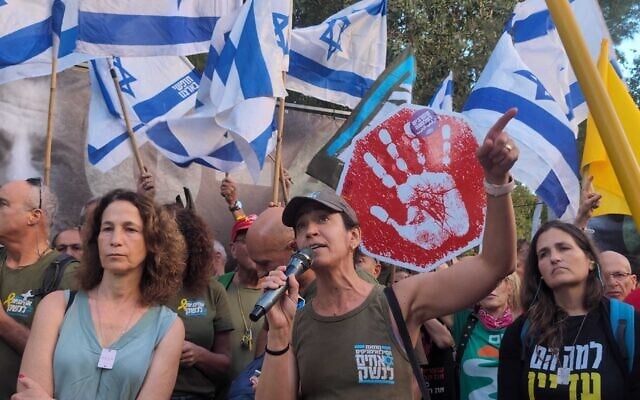 Protesters call for a hostage deal outside the home of Strategic Affairs Minister Ron Dermer in Jerusalem, September 3, 2025. (Tanya Zion-Waldoks/Pro-Democracy Protest Movement)
Protesters call for a hostage deal outside the home of Strategic Affairs Minister Ron Dermer in Jerusalem, September 3, 2025. (Tanya Zion-Waldoks/Pro-Democracy Protest Movement)“Complete failure,” the protesters say in a statement, accusing the government of capitulating to its far-right flank and “torpedoing” a proposal for a ceasefire-hostage deal accepted by Hamas weeks ago and that Israel hasn’t responded to, despite mediators saying it is almost identical to an outline previously accepted by Jerusalem.
A convoy of vehicles has also set out from Latrun toward Jerusalem to call for the captives’ release.
The mother of the hostage Nimrod Cohen: “There are more videos of him that we demand to publish – he is not only a picture on a poster”
The mother of the hostage Nimrod Cohen: “There are more videos of him that we demand to publish – he is not only a picture on a poster”
Nimrod Cohen is one of 48 hostages who are held in Gaza already 698 days • his parents are partners in the escalation of the protest steps for the hostages that will begin today at noon opposite the residence of the Prime Minister in Jerusalem • Viki Cohen in an interview to N12: “It is not possible to continue in this situation of the disconnect on the part of the Prime Minister and the members of the government. We will continue to struggle and to oppose”
Nimrod Cohen is one of 48 hostages who are held in Gaza already 698 days • his parents are partners in the escalation of the protest steps for the hostages that will begin today at noon opposite the residence of the Prime Minister in Jerusalem • Viki Cohen in an interview to N12: “It is not possible to continue in this situation of the disconnect on the part of the Prime Minister and the members of the government. We will continue to struggle and to oppose”
From the Hamas video of the kidnapping of Nimrod
“It is not possible to continue in this situation of the disconnect of the Prime Minister and the members of the government. It is not possible to continue with this that a cabinet convenes and does not discuss the return of hostages, foot-dragging and a decision not to respond to the answer of Hamas. The conquest of Gaza will endanger the hostages and also the soldiers. It is difficult for us to live with this. We will oppose and struggle,” she added.
“It is not possible to continue in this situation of the disconnect of the Prime Minister and the members of the government. It is not possible to continue with this that a cabinet convenes and does not discuss the return of hostages, foot-dragging and a decision not to respond to the answer of Hamas. The conquest of Gaza will endanger the hostages and also the soldiers. It is difficult for us to live with this. We will oppose and struggle,” she added.According to her, “there are more videos from the first period of Nimrod in captivity that the army is still not ready to transfer to us. We are not giving up on this. These videos are important for us to the public struggle, it is important that the public will recognize and know. Nimrod is not only a picture on a poster. He is a soldier who was kidnapped alive on his legs, in a cruel way – and it is necessary to bring him back home and to bring back everyone home.”
Viki referred to the warning of the Chief of Staff about a death trap in an operation to conquer Gaza: “We heard Zamir speak about an immediate danger to the hostages, he is against the move and his criticism is important. We are doing everything that we can so that the government of Israel will finally end the war and sign an agreement that will bring back home everyone.”
The family of the hostage Nimrod Cohen (photo: Avshalom Sassoni, Flash 90)
“After the announcement of the President of the United States Donald Trump, we received a message from the Hostages Directorate headed by Gal Hirsch that there is no change of status in the number of the living hostages. And nevertheless it arouses worry – does he know things that we do not know? Are they lying to us? From where does he draw the information? On the other hand Trump said in the past that soon the war will end and the hostages return so that I do not know and am very confused from such statements.”
These are the protest events for the hostages that are expected to take place today in Jerusalem:
13:30 – gathering near the Knesset building of mothers to soldiers, reservists, and families of hostages
14:00 – march of the mothers and the women’s coalition from the Knesset to the house of the Prime Minister
15:30 – opening of the protest encampment opposite the house of the Prime Minister and declaration of families
16:30-19:30 – “Shmurat 101” at Gaza Street corner of Metudela
19:30 – huge demonstration near the residence of the Prime Minister“Our goal is to apply such pressure that the Prime Minister will understand that he cannot ignore anymore the will of the public,” clarified Viki. “This is our struggle the families but actually a struggle over all the society in Israel. A struggle over the mutual guarantee and over the value that no one is left behind. We are a people that sanctifies life and not land. We will not be able to rehabilitate as a society if they do not return home.”
According to her, “there are more videos from the first period of Nimrod in captivity that the army is still not ready to transfer to us. We are not giving up on this. These videos are important for us to the public struggle, it is important that the public will recognize and know. Nimrod is not only a picture on a poster. He is a soldier who was kidnapped alive on his legs, in a cruel way – and it is necessary to bring him back home and to bring back everyone home.”
Viki referred to the warning of the Chief of Staff about a death trap in an operation to conquer Gaza: “We heard Zamir speak about an immediate danger to the hostages, he is against the move and his criticism is important. We are doing everything that we can so that the government of Israel will finally end the war and sign an agreement that will bring back home everyone.” link
**There is nothing more important than getting them home! NOTHING!**
“I’ve never met them,But I miss them. I’ve never met them,but I think of them every second. I’ve never met them,but they are my family. BRING THEM HOME NOW!!!”
Red Alerts - Missile, Rocket, Drone (UAV - unmanned aerial vehicles), and Terror Attacks and Death Announcements
*9:40am - Tel Aviv and Jerusalem areas - ballistic missile from Yemen - successfully intercepted - no injuries, shrapnel fell in open area near Highway #1 (Jerusalem-Tel Aviv highway) near the airport, which is always a main target of the Houthis
*Gaza Envelope - Rockets from Gaza - Nir Am
- After US cools on phased Gaza deal, senior Qatari official laments ‘moving goalposts’
Qatari PM’s aide says the offer that Arab mediators convinced Hamas to accept is 98% of what Witkoff proposed, before Israel began demanding new concessions that make deal impossible. DOHA, Qatar — Arab mediators thought they had finally reached a breakthrough on August 18 when they coaxed Hamas to accept a proposal for a phased ceasefire and hostage release deal that was nearly identical to the one sponsored by US special envoy Steve Witkoff and approved by Israel a month earlier.
It was about three weeks after talks had blown up in Doha, however, and Israel and the US had recalled their negotiating teams over new conditions added by Hamas that Jerusalem and Washington refused to accept.
During that period, Israel declared it was no longer interested in the phased framework that had been discussed — one that Prime Minister Benjamin Netanyahu began pushing some 16 months earlier in order to try and secure the release of at least some of the hostages without committing upfront to a permanent end to the war.
But Arab mediators Egypt and Qatar stuck to the existing script — a two-month truce during which roughly half of the remaining hostages would be freed while Israel and Hamas would hold talks on a permanent ceasefire and the release of the remaining captives at the conclusion of those 60 days. Cairo and Doha deemed the gaps that existed after Hamas’s July 24 proposal small enough to fill, compared to the vast void that would exist between the sides if talks were to be held on a one-phase deal to end the war.
The mediators kept Witkoff apprised of their efforts, assuming he would back them if they succeeded. But when the breakthrough came, the US envoy remained mum for nearly two weeks before telling Fox News that the “official position” is against multi-staged hostage release deals.
In a Monday interview with The Times of Israel from Doha, Majed al-Ansari, the spokesperson for Qatar’s lead negotiator, Prime Minister Mohammed bin Abdulrahman al-Thani, avoided explicitly criticizing Washington’s conduct, but did assert that “moving the goalposts at every segment of this crisis only makes it impossible to reach a deal.”
This handout picture made available by the Qatar Amiri Diwan shows Qatar’s Amir Sheikh Tamim bin Hamad al-Thani (R) meeting with Egypt’s President Abdel Fattah El-Sisi in Doha on April 13, 2025. (Qatar Amiri Diwan / AFP)For their part, Witkoff and Netanyahu have respectively claimed that Hamas “slow-played” and “led us astray” during earlier rounds of negotiations, justifying the decision to shift their approach to demand a one-phase deal.
The Israeli premier’s critics have argued that Israel has also added conditions or dragged out talks in ways that prevented hostage deals from being secured at earlier points in the war.
And while Hamas has long proposed releasing all of the hostages at once in exchange for an end to the war, as Netanyahu is now demanding, Jerusalem is also conditioning that end to the war on the terror group disarming, the Strip being demilitarized, Israel retaining overall security control over the enclave, and having a new civil administration that is not Hamas or the Palestinian Authority governing the territory.
“Does that sound like anything that any party can accept when it comes to a final deal? This is practically what happens when one side surrenders,” Ansari argued. “The Israelis have been militarily trying to solve this issue now for [almost] two years. What is their expectation? That they will secure these military outcomes through diplomatic means?”
The senior Qatari official, who is Doha’s foreign ministry spokesperson, clarified that despite Washington’s apparent rejection of the Arab mediators’ ceasefire offer — “which is 98 percent of what Witkoff’s proposal was” — the middlemen are not giving up and are “still entertaining” alternative ideas that envision a “more comprehensive” deal.
The threat of military pressure
In the meantime, Israel is proceeding with plans to take over Gaza City, where roughly one million Palestinians are said to be sheltering after being repeatedly displaced throughout the 22-month war, which was triggered by Hamas’s brutal October 7, 2023, assault on southern Israel.
Hamas notably agreed to come down from its July 24 demands only after the security cabinet approved Netanyahu’s proposal to conquer Gaza City, which the premier is characterizing as Hamas’s last stronghold — language he also used to describe the southern city of Rafah before the IDF invaded the Strip’s southern border city in the spring of 2024.
Ansari conceded that the threat of military pressure may have been effective, but he argued that Israel failed to seize the opportunity for a diplomatic agreement once that pressure buckled Hamas.
Displaced Palestinians fleeing northern Gaza Strip move with their belongings along the Sea Road, near Wadi Gaza on August 30, 2025. (AP/Abdel Kareem Hana)
“The threat of military pressure is different than actual military pressure on the ground,” he argued. “Because when you threaten to stab me with a knife, you might cause me to change my position, but after you stab me, the only thing I can do is [respond in kind].”
On the other hand, the government’s defenders retort that the threat of military pressure is only effective if it is proven credible.
Ansari maintained that “this intensification of operations in Gaza City will only mean that the military response from Hamas’s side is going to be all-out war,” which will only result in “guerrilla warfare.”
“We know from recent history that this is not something that armies excel at when they are fighting an indigenous population,” he argued.
Missed opportunities
The Qatari official claimed that this wasn’t the first time Israel had missed an opportunity for an agreement.
“There were deals on the table that would have brought most of the hostages home to their families, that would have brought peace to our region, that would have ended the bloodshed in Gaza and that would have guaranteed security, not only for Israel, but for the region as a whole,” Ansari said.
“The Witkoff plan was a very clear way out of this,” he continued. “We had the Americans on board, we had the Israelis on board, and finally, we had Hamas on board. But political posturing played a role in this.
“The dogmatic approach and perceptions of the crisis, in a way that didn’t reflect the realities on the ground, ended up being [decisive],” the senior Qatari official said, apparently referring to the US and Israeli decision to pull out of the talks on July 24 when Arab mediators felt a deal was still within reach.
US special envoy Steve Witkoff (2nd left) and US Ambassador to Israel Mike Huckabee (3rd left, in back) tour a Gaza Humanitarian Foundation distribution site on August 1, 2025. (Mike Huckabee/X)Pressed on Hamas’s decision not to accept the so-called Witkoff proposal as is in July, Ansari agreed that the terror group had also repeatedly missed opportunities, and ignored the Arab mediators’ warnings each time that the terms for an agreement would only get worse the longer the war dragged on.
But as conditions deteriorate in Gaza — for Hamas, the hostages and Palestinian civilians — so too might the will of the fundamentalist group to compromise, Ansari said.
“The occupation of Gaza City, which will have catastrophic humanitarian results, is not going to push any side toward a deal,” he contended. “We told the Israelisthat they are putting their hostages, their people, at risk without having a strategic view of what they want to do.”
The operation, he argued, is “a gamble that apparently the Israeli government wants to take, but one that will put the whole region at risk.”
Pressed on whether the commencement of the Gaza City operation would mark a point of no return for hostage talks, he responded that negotiations are harder to conduct under fire and the chances for a deal “go down dramatically.”
Boys stand in the rubble of a collapsed building that was hit by bombardment in the Nuseirat camp for Palestinian refugees in the central Gaza Strip on August 30, 2025. (Eyad BABA / AFP)
Still, he insisted that the Arab mediators would continue engaging on the issue, as they have to date.
Their latest proposal “is probably the fourth or fifth manifestation of that same document [from a year and a half ago] — back then, it was dubbed the Biden proposal,” Ansari said, referencing the framework backed by the US president at the time. “All of these proposals provided a pathway out of this [war].”
Joining the anti-Hamas chorus
“Especially after the two-state solution conference in New York… there was a very clear position, an international consensus, with very few holdouts, but [the Israelis] did not seize that opportunity,” the senior Qatari official lamented.
At that conference, Qatar joined the rest of the Arab League in signing onto a joint statementthat called on Hamas to release the hostages, disarm, and end its rule in Gaza.
The missive organized by France and Saudi Arabia surprised many of Qatar’s critics, who have long berated the Gulf state for its ties to Hamas, whose leaders have been hosted in Doha since 2012.
“We’ve been a mediator since 2006, but that doesn’t mean that we condone activities on both sides,” Ansari maintained.
In this February 6, 2012, file photo, then-Emir of Qatar, Sheikh Hamad Bin Khalifa Al-Thani, center, Palestinian President Mahmoud Abbas, left, and then-Hamas leader, Khaled Mashaal, arrive to sign an agreement in Doha, Qatar. (AP Photo/Osama Faisal, File)He explained that Qatar has long called for Gaza and the West Bank to be reunited under the sole leadership of the PA.
But at Israel’s request, Doha also gave hundreds of millions of dollars in aid to Gaza, which for years helped prop up Hamas.
Ansari pointed out that Qatar has also bankrolled the PA to the tune of hundreds of millions of dollars, even while arguing for Hamas to be able to maintain a space in the Palestinian polity.
He acknowledged that the language of the joint statement against the terror group goes further than Doha has in the past, but said “it reflects the consensus in the region on what needs to be happening regarding the Palestinian question.”
Emir Tamim bin Hamad al-Thani (L), ruler of Qatar since 2013, in a meeting with Hamas leaders Ismail Haniyeh (R) and Khaled Mashal in Doha, October 17, 2016 (Qatar government handout)As for whether the break with Hamas could lead Qatar to expel the group’s leaders from Doha, Ansari asserted that mediation was the only reason his country was playing the role of host — a longstanding request of the US and Israel.
“If there is no mediation to be had, that’s a different story,” he said, pointing to Qatar’s decision to quietly ask Hamas leaders to leave the country late last year when hostage talks stalled. Witkoff subsequently asked Doha to recall the group’s leaders, deeming that to be the best strategy for reviving talks that ultimately resulted in a temporary ceasefire in January.
Qatargate
Qatar’s relationship with Hamas — even though it was exploited by repeated Netanyahu governments — has made Doha a bipartisan punching bag in Israel.
Ansari didn’t appear fazed, though. “Netanyahu is one of the constants in the region since 1996. I was in school the first time he was elected as prime minister. This government’s way of doing business is not a new occurrence that we have to learn how to deal with.
“Scapegoating Qatar has become a favorite sport in so many countries. It is because of the mediation role we play, because of the engagement we have… that we are being attacked,” Ansari claimed.
But in Israel, two of Netanyahu’s aides are under criminal investigation for allegedly working for a pro-Qatar lobbying firm run by the premier’s former campaign manager while simultaneously being employed by the prime minister, even continuing their work for Qatar well past October 7.
Israelis protest against Prime Minister Benjamin Netanyahu outside the district court in Tel Aviv, where he is testifying in his corruption trial, March 10, 2025. The display includes a ‘suitcase of cash’ representing Qatari payments to Gaza, and a banner about so-called ‘Qatargate.’ (Avshalom Sassoni/Flash90)Ansari insisted that Qatar has been perfectly aboveboard.
“We have a very clear communication line with the Israeli public and the Israeli government, and we don’t need any other way of affecting opinion,” he said, highlighting that his interview with The Times of Israel was the latest in a consistent engagement with Israeli media, going against the policy of most other Arab governments in the region — even ones that, unlike Doha, maintain full diplomatic ties with Jerusalem.
When pressed on the implicated Netanyahu aides’ acknowledgment of having taken Qatari money, Ansari declined to comment, saying that was a matter “for the courts to decide, and we’re not going to affect the judicial process by making any statements to contradict or to validate anything that’s being said in the courts.”
American pressure critical, but not in isolation
While Qatar’s relationship with Israel has long been strained, its ties with the US are at a “high note” under the Trump administration, Ansari said.
“We’ve been working together, not only on the Palestinian issue, but on so many issues around the world — some of which are known, some of which are not,” he revealed. “We believe this administration can do a lot of business when it comes to peace-building internationally.”
To succeed in Gaza, though, “American pressure is what is going to get the Israelis to the table,” he said.
“Ultimately, it’s a political decision [that needs to be made] in Israel,” Ansari said. “We’ve heard what the [IDF] has been saying about the operation in Gaza. We’ve heard what they have said about the [need for a] deal. So we know it’s purely a political decision… that has to be taken by the political operators who are making it difficult to reach this deal.
“Obviously, this will need international pressure — paramount among which is pressure from the United States,” Ansari added. link
There are many things that Ansari would like to say about Netanyahu but he does his best to be diplomatic. He won’t say that Netanyahu us a consummate liar who can’t be trusted; or that it is Netanyahu who, himself would add uncompromising and unattainable demands at the last minute, assuring negotiations would fail every time. There are so many other truths that he could say about Netanyahu such as Hiw Netanyahu literally begged the Qataris to keep funding Gaza/Hamas and sent the head of the Mossad and the IDF chief of staff on 2 separate occasions to beg them not to cut off the funding. But he won’t say any of these things, at least not presently and not in public, even though I have no doubt that all of this rings in his head every time he hears Netanyahu’s voice which is automatically followed by lies.
With all of this said, let's not forget that the Qataris are far from the good guys. They are a state that sponsors terror and has been doing that for a very long time. They support the Muslim Brotherhood and they have given billions to universities in the US and Europe in order to determine curriculums and choose lecturers and professors. This was a long term strategic plan that changed the narratives on universities across the US. It was no accident and it didn't happen in a vacuum that protests against Israel and pro-Hamas began the very next day after the October 7 massacre. The preparations for massive 'spontaneous' protests against Israel was long in the making and much of it financed by Qatar.
Due to their financing terror organizations, not just Hamas, they were very scared of being designated by the US as a country that sponsors terror and that was one of their main reasons to stop funding Gaza/Hamas directly (they funded Hamas in secret ways as well). If they were designated as such, they would have lost the ability to have Qatar Airlines fly to many places in the world, they would have been cut off from the SWIFT Banking system preventing them from working with all major world banks. They would have been cut off from so much that it would have had devastating impact on their economy and power. Netanyahu, as part of his begging for them to continue funding Gaza/Hamas promised that he would talk to the US Administration and make sure they wouldn't be designated as a state sponsoring terrorism, even though they very much were and still is.
Due to the absolute barbarism and pride in the barbarism that Hamas had in what they did on October 7, with all the live viewing and videos they took, Qatar needed to find a way not to be the bad guys here due to their sponsoring Hamas and housing most of the Hamas diaspora leadership in Doha. They immediately entered the game as mediators to help get our hostages released.
Egypt had played that role with the soldier Gilad Schalit when he was in Hamas captivity and they immediately stepped in, also due to the proximity to Gaza and the fact that Gaza and Egypt have a shared border. As a result, Qatar needed to go into action to compete with Egypt and either be part of the group of mediators or stand alone in that arena. They also needed to have a positive spotlight on them to keep all the negative out of the headlines. One of the ways they accomplished that was to hire people in Netanyahu's office to work for them as 'agents' who would put out good press exulting Qatar's role in helping Israel with the hostage crisis and to end the war. The fact that people who worked closely with Netanyahu were now on the Qatari payroll would never have happened without Netanyahu's knowledge. Too many people who have worked very closely with Netanyahu over many years have all said that nothing happens in the prime minister's office that Netanyahu doesn't know about. So all of Netanyahu's denials, which then turn into quiet admission with the statement, 'so what if they did?' shows that Netanyahu's interests are far from the interests of the country.
1,000 operatives, overseen by slain Abu Obeida: Report details Hamas’s propaganda network deployed throughout Gaza
Army Radio has reported on Hamas’s propaganda and psychological warfare arm, which was led by the group’s military spokesperson, Abu Obeida, until his elimination in a weekend strike.
The report says Hamas’s influence network currently includes over 1,000 operatives (with around 200 more killed in the war). It says Abu Obeida built it up over the past decade, with operatives embedded in Hamas combat units throughout the Strip, filming, editing and distributing propaganda material on combat operations.
It says the network adapts constantly, relocating command centers to schools and hospitals when targeted by Israeli strikes.
It includes “intelligence listeners” who monitor Israeli media and public discourse to suggest psychological warfare operations.
Army Radio says the network has played a central role in the propaganda campaign surrounding the hostages in Gaza and the distribution of videos featuring captives.
It says Abu Obeida recently drafted plans for efforts to prevent Israeli forces’ advance into Gaza City, through manipulation of Israeli public perception.
IDF eliminates senior Hamas terrorist who held 3 female hostages
Hazem Awni Naeem, a senior operative in Hamas’ Gaza City brigade and close to its commander, was killed by IDF and Shin Bet; He had held Emily Damari, Romi Gonen, and Naama Levy captive during the warThe IDF and Shin Bet confirmed Tuesday evening that they had eliminated senior Hamas terrorist Hazem Awni Naeem in the Gaza City area. Naeem had held three Israeli hostages during the ongoing war: Emily Damari, Romi Gonen, and Naama Levy.According to the IDF, Naeem served in multiple roles within Hamas’ Gaza City brigade and was a senior figure in its military intelligence. He was considered close to the brigade’s commander, Ezz al-Din Haddad, now regarded as Hamas’ de facto military leader in Gaza.Emily Damari and Romi Gonen were released in the first phase of Israel’s latest hostage exchange, along with Doron Steinbacher, while Naama Levy and other female observers were freed in the second phase.The operation is part of ongoing Israeli efforts to target senior Hamas figures responsible for hostage-taking and military intelligence operations during the war. LinkDramatic elimination in Gaza: eliminated the head of the organization that held the Bibas family – and who advanced attacks in Judea and Samaria
The IDF and the Shin Bet announced the elimination of Sabah Salim Masabah Daia, head of the terror organization Kata’ib al-Mujahedin in the Gaza Strip • Daia, who was appointed after the elimination of his predecessors, led the organization that was involved in many attacks and in the kidnapping of members of the Bibas family of blessed memory
The terrorist Sabah Salim Masabah Daia who served as head of the terror organization Kata’ib al-Mujahedin in the Gaza Strip was eliminated last week in the Nuseirat area – thus announced this morning (Wednesday) the IDF and Shin Bet. It concerns the terror organization that kidnapped and held Shiri, Ariel, and Kfir Bibas of blessed memory.
Sabah Salim Masabah Daia was recently appointed to head the terror organization, after the three previous leaders of the organization were eliminated in IDF strikes in recent months. Daia was directly involved in the recruitment of terrorists in Judea and Samaria and inside Israel, through them he advanced and carried out attacks and terror operations.
During the war, under his leadership, the organization was involved in planning and carrying out attacks in Israeli territory and in assaults against IDF forces operating in the Gaza Strip.
Terrorists of the terror organization Kata’ib al-Mujahedin took a central part in the murderous massacre on October 7, and were involved in acts of murder and kidnapping. They acted without being partners in the preliminary planning of Hamas, but within the framework of exploiting the terror outlines that Hamas dictated in the field. link
Israel declares large swath of land near illegal West Outpost as ‘state land’
The Civil Administration, a department of the Defense Ministry, has declared 456 dunams (112 acres) of land adjacent to the illegal outpost of Havat Gilad in the northern West Bank to be “state land,” meaning it will be available for the development of settlements and settlement infrastructure, according to a Civil Administration document.
The land was previously part of the administrative lands of the nearby Palestinian villages of Jit, Tell and Fara’ata, although it is not privately owned. Anyone who claims the land is under their private ownership can appeal the decision within 45 days of the declaration, which was approved on September 1.
Although the land declared to be state land is likely not privately owned, the borders of the new state land area are tortuously drawn and include islands of land within the state land zone that may be privately owned by Palestinians.
Access to this land will be impossible if residential or commercial settlement developments are built on the state land, the left-wing Peace Now organization, which campaigns against the settlement movement, said.
The government in 2018 declared its intention to legalize Havat Gilad, but due to claims by local Palestinians that they own land on which the outpost is built, efforts to legalize it have run aground.
Residents of the outpost have tried to claim the land was legally purchased but have been unable to prove this, apart from for one plot out of dozens on which the outpost lies, according to Peace Now.
The large majority of the state land declared by the Civil Administration lies around a kilometer south of Havat Gilad. Peace Now argues that the land declaration will therefore be used to expand the outpost, without the original dwellings being demolished.
The current government has declared unprecedented amounts of West Bank land to be state land. Since it took office at the end of 2022, some 26,000 dunams (6,424 acres) of West Bank land have been declared state land in less than three years, half the total since the Oslo Accords were signed in 1993.
Some 99.8% of state land in the West Bank designated for development has been allocated to settlements and settlement enterprises, and just 0.2% to Palestinians, Peace Now says. link The Civil Administration of the Defense Ministry was put under the purview of the extremist Smotrich as minister in the Defense Ministry. His entire reason and motivation for demanding this ministerial role was to be able to steal more Palestinian lands and declare them state property in order to build more and more illegal settlements and to push out as many Palestinians as possible from the West Bank. His other position as the most unqualified Finance Minister in our history provides him with being able to allocate billions of shekels to further his messianic colonialistic missions in the West Bank to be followed with Gaza. He has been busy emptying the State coffers to further his extreme ideologies at the expense of the critical social welfare programs and education that are already in dire straits. None of that matters to him as long as he can continue with his extreme Jewish takeover of the entire West Bank, and all this during our longest and most expensive wars of all time. But we can't fault in entirely. He has never made a secret of his plans and objectives which were mostly on the fringe. It is Netanyahu in his narcissistic need to remain prime minister who put Smotrich in both of his ministerial positions in order to build a coalition to keep him in power. The price to keep him in power is never too high as we have seen too much over the last 2 years of this never ending war of Netanyahu's war for political survival. He has normalized the most extremist ideologies and behaviors of Israeli society for his own personal needs and turned the country into a pariah nation. Thank you Netanyahu for the gifts that don't stop giving.
- Politics and the War and General News
- IDF probe reveals heroic last stand against elite Hamas terrorists on Oct. 7 at two isolated bases
Military investigation found that at Yiftach Camp and Erez Control Center, small groups of mostly support troops fought elite Hamas terrorists to the last bullet, killing many attackers but losing 13 soldiers, preventing wider infiltration into civilian areasAn Israeli military investigation released Tuesday describes how small groups of soldiers at Yiftach Camp and the Erez Control Center fought against waves of Hamas terrorists on Oct. 7, preventing the bases from being captured even as 13 troops were killed.The yearlong probe, led by Col. (res.) Yaron Sitbon, found that both bases were largely manned by support troops — including drivers, cooks and logistics personnel — with few combat soldiers present. Despite being untrained to withstand a large-scale invasion, they managed to stall Hamas forces for hours, saving nearby communities from a wider massacre. The first clashes According to the investigation, the first alarm came when Golani fighters Capt. Itay Maor, Sgt. Ori Locker and Sgt. Amit Tsur, from the 51st Battalion, were on a routine patrol in a David jeep near the northern Gaza border. They received a warning about a breach attempt at reporting point 12 and rushed to the scene, arriving as a tank from the 77th Battalion was taking position. Capt. Itay Maor, Sgt. Ori Locker and Sgt. Amit Tsur At that moment, two Hamas terrorists tried to blow open the fence to allow a Nukhba company to infiltrate Netiv HaAsara. The Golani fighters opened fire, stopping the breach. Only three terrorists ultimately managed to enter the community, but they carried out a deadly rampage. The three soldiers then raced toward Zikim after reports of gunfire. Their jeep drove into an ambush by dozens of terrorists who had arrived from the sea. The Golani fighters dismounted, took cover inside training huts at the firing range and fought at close range, killing many attackers. The probe found they fought “to the last bullet in their magazines” before being overrun and killed, diverting much of the terrorist force away from nearby bases. Meanwhile, the 77th Battalion tank crew that had fired earlier tried to rescue a stuck armored personnel carrier, but came under heavy fire from dozens of Hamas fighters. The tank commander was shot, and the gunner took his place to keep firing. Some terrorists seized an abandoned IDF jeep and drove it, nearly causing deadly friendly fire hours later when Israeli forces mistook it for enemy use. The battle for Erez base At the Erez Control Center, a small joint base of the navy and a Golani unit, the situation was no less desperate. The entire base that Saturday morning was under the command of a sergeant. When the opening rocket barrage shook the compound, most soldiers ran to shelters. Staff Sgt. Ofir Zioni, a Golani squad commander, acted differently. He sprinted toward the shoreline and spotted a motorboat loaded with terrorists speeding from Gaza. He opened fire, preventing it from reaching the Israeli coast. Realizing that terrorists were converging on the base from multiple directions, he circled back and took up a position near the shelter, killing attackers until he was shot and killed. His stand bought critical time and prevented the outpost from being overrun. Staff Sgt. Ofir Zioni (Photo: IDF Spokesperson's Unit) His comrades, including support troops, continued fighting inside the base. Under fire, relatives of some of the base’s cooks drove to the scene and evacuated wounded soldiers in their private cars, braving heavy shooting on the road from Zikim to Barzilai Hospital in Ashkelon. Yiftach Camp under siege At Yiftach Camp, less than a kilometer from the Gaza border, the situation was equally dire. Cpl. Naama Boni, a welfare NCO, was alone at the front gate when rockets hit at 6:29 a.m. She phoned her family as explosions shook the compound. Staff Sgt. Ido Harush, a tank crewman, ran from shelter dressed only in sports clothes to help her. Together with three other soldiers carrying only their rifles, they held the gate against waves of terrorists. Lt. Yoav Malayev, a communications officer on weekend duty, soon joined them. For 15 minutes the group held their ground, firing at terrorists who kept advancing with heavier weapons. Boni reported their situation nonstop over her phone to nearby units and Magen David Adom. But as ammunition ran out and shrapnel wounds mounted, the defenders were overwhelmed. Harush and Boni were killed at close range. Staff Sgt. Ido Harush (Photo: IDF Spokesperson's Unit) Malayev ran back to the command post and shouted over loudspeakers: “Anyone with a weapon, get to the gate immediately.” According to the probe, 10 combat engineers heard the call, but only a small group left shelter and briefly joined the fight before retreating. The rest chose to remain inside, a decision the army later described as “unworthy and a professional failure.” As fighting intensified, terrorists stormed through the gate after an armored ambulance evacuated the wounded and broke open the entrance. One injured Israeli soldier, seeing the attackers try to carry away the body of a comrade, fired his last rounds to prevent the abduction before collapsing. Malayev returned to the gate to keep firing, but was struck by a bullet. Before dying, he scrawled a note: “These were the best 20 minutes of my life. Now I crawl.” Holding the line By midday, about 30 Hamas terrorists armed with RPGs, heavy machine guns and hundreds of magazines were inside Yiftach Camp. The last gunman was killed by 1 p.m., but full control of the base was restored only by 5 p.m., after reinforcements from the 77th Battalion and senior commanders arrived. Elsewhere, a female lookout operating a remote-controlled heavy machine gun spotted terrorists fleeing in a stolen Humvee and opened fire, killing them before they could return to Gaza. In total, nine Israeli soldiers were killed at Yiftach, and four more — including Maor, Locker, Tsur and Zioni — fell at Erez and Zikim. “The swift arrival and determined fighting of the 77th Battalion prevented the enemy from capturing Yiftach Camp,” Sitbon wrote in the report. “The arrival of additional commanders stopped further infiltration.” He added that the conduct of the engineering troops “constituted both a professional and ethical failure.” Despite the failures, the probe concluded that the courage of a few soldiers prevented an even greater catastrophe. link Tens of thousands of reservists drafted ahead of Gaza City takeover, but turnout down
Many say they’ll show up but lament strain on families and collapsing businesses, call on Haredi men to share burden; over 300 sign letter vowing they won’t take part in ‘illegal war
Tens of thousands of reservists were set to be drafted to the Israel Defense Forces Tuesday, in what was said to be the largest single call-up since right after the start of the war almost two years ago, though turnout was reportedly low, with fewer reservists showing up for duty.
According to Hebrew-language media, the call-up — the first phase of a wider draft for the planned conquest of Gaza City — faced challenges with fewer reservists inclined to report for duty after nearly two years of war, repeat rounds of service, and a sense that the burden is not fairly shared among the population.
Around 60,000 were set to be drafted in a number of waves for the operation, with some 40,000-50,000 ordered to show up for duty on Tuesday, one day after the start of the school year.
Many reservists have reportedly requested exemptions, citing personal or financial reasons, and units are seeing lower turnout than in previous emergency call-ups. Hundreds have signed a letter vowing not to report for duty, with one calling the Gaza City operation “patently illegal.”
Senior officers noted that even within regular battalions, company and platoon sizes have shrunk, while a significant portion of the reservists reporting were volunteers who were not organically part of the units.
“There are fewer teams that have confirmed their arrival compared to previous times. The companies and platoons are less full — we have to wait and see who will arrive,” an unnamed officer told the Kan public broadcaster.
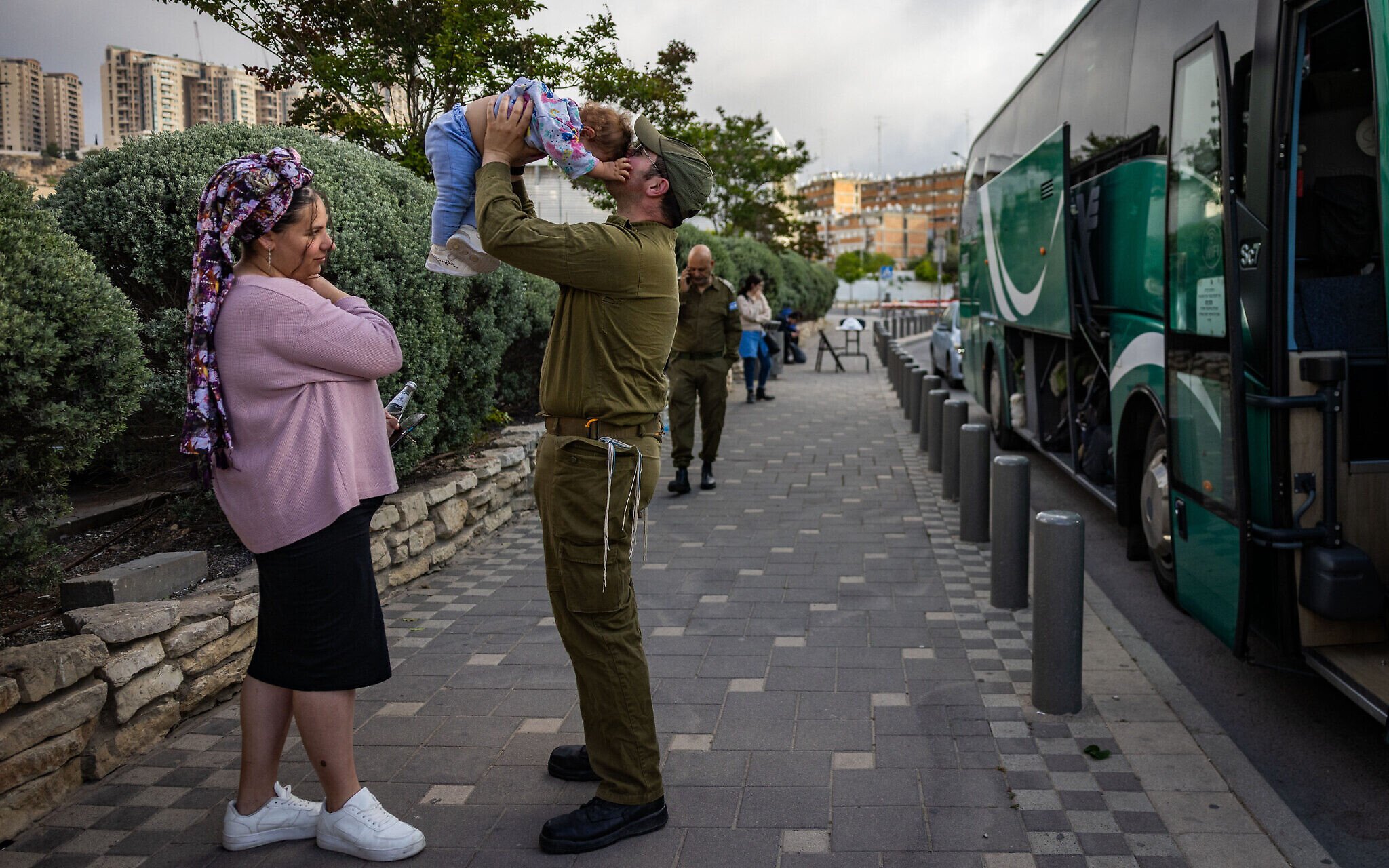 Illustrative: An Israeli reserve soldier kissing his child goodbye in Jerusalem, May 5, 2025 (Chaim Goldberg/Flash90)
Illustrative: An Israeli reserve soldier kissing his child goodbye in Jerusalem, May 5, 2025 (Chaim Goldberg/Flash90)The reservists — who will be away from home during the upcoming Jewish High Holidays period — were set to undergo training and preparation in the coming days, with some slated to replace regular forces stationed in Israel’s north and the West Bank as the IDF plans to eventually deploy four divisions into Gaza City.
The Wall Street Journal reported that some senior officers have had to think outside the box in attempts to recruit enough soldiers.
“I’m looking for combat soldiers, mainly medics and snipers, for an operation of 70 days starting on September 11. If there are reservists who are interested, please message me privately,” wrote one on a WhatsApp group for university students.
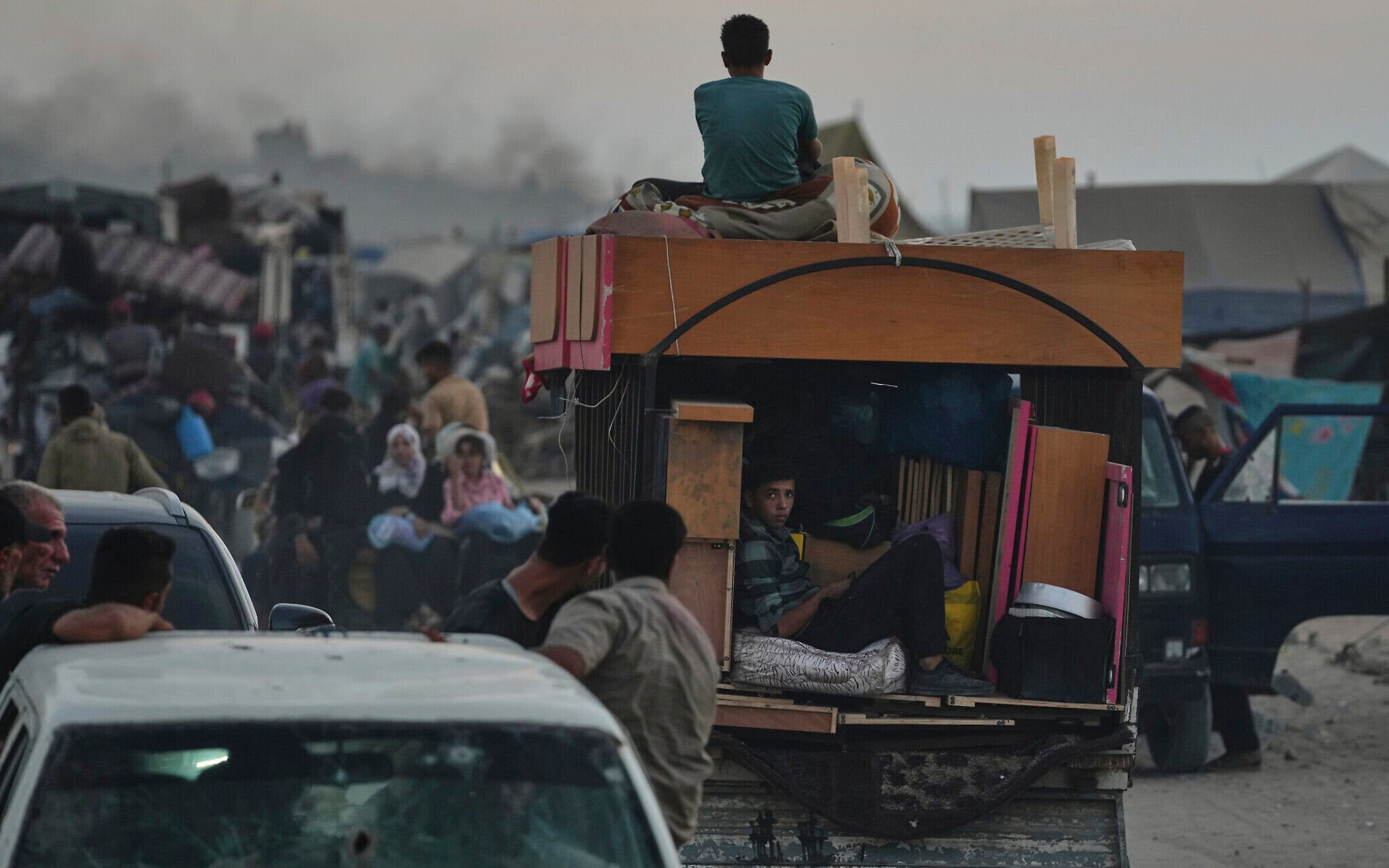 Displaced Palestinians fleeing the northern Gaza Strip move with their belongings along the Sea Road, in Gaza City, September 1, 2025. (AP Photo/Jehad Alshrafi)
Displaced Palestinians fleeing the northern Gaza Strip move with their belongings along the Sea Road, in Gaza City, September 1, 2025. (AP Photo/Jehad Alshrafi)Omer Ben Hemo of the Israeli Reservists — Generation of Victory organization called on ultra-Orthodox men to enlist in the army to help ease the burden.
Some 80,000 ultra-Orthodox men aged between 18 and 24 are currently believed to be eligible for military service, but have not enlisted. The IDF has said it urgently needs 12,000 recruits, due to the strain on standing and reserve forces, throughout the ongoing war against Hamas in Gaza and other military challenges.
“With all the problems [Haredi men] could have in the army, the situation among the people and in the reserves and among the soldiers is difficult,” Ben Hemo told Channel 12 news.
“If you are our brothers, you need to save us… It doesn’t make sense to do 300 days [of reserve service] a year. We are not regular troops, but reserve soldiers. We have family, businesses and studies — it shouldn’t look like this,” he said.
Over 300 announce they will not report
On Tuesday, a group of more than 300 reservists opposed to the Gaza City conquest announced in a letter that they would not longer report for duty if called up to fight. The effort is affiliated with the left-wing anti-war group Standing Together.
“We are over 365, and counting, soldiers who served during the war and have declared that we will not report for duty when called again,” Sgt. First Class (res.) Max Kresch said at a Tel Aviv press conference. “We refuse to take part in Netanyahu’s illegal war, and we see it as a patriotic duty to refuse and demand accountability from our leaders.”
Kresch, a combat medic, said that the group of reservists and soldiers consists of the same people who rushed to the frontline during the Hamas-led October 7, 2023, attack to protect Israel.
Hundreds of IDF reservists say they won’t report for duty if called up for Gaza City takeover opA group of hundreds of reservists opposed to the IDF’s plans to take over Gaza City have announced they will no longer report for duty if called up to fight in the ongoing war against Hamas.
“We are over 365, and counting, soldiers who served during the war and have declared that we will not report for duty when called again,” says Sgt. First Class (res.) Max Kresch at a Tel Aviv press conference. “We refuse to take part in Netanyahu’s illegal war, and we see it as a patriotic duty to refuse and demand accountability from our leaders.”
Kresch, a combat medic, says that the group of reservists and soldiers are the same people who rushed to the frontline on October 7 to protect Israel.
“It is precisely from that same sense of duty that we are driven to refuse,” he declares.
Sgt. First Class Dor Menachem says the order to occupy Gaza City “endangers the hostages and soldiers themselves,” claiming the entire military establishment expressed a “determined stance against” such a move. “There is no logic to this step,” he adds.
Cpt. (res.) Ron Feiner, who served 270 days in reserve duty over the war, calls the decision made earlier this month to take over Gaza City — which many view as the first step to occupying the entire Strip — a “patently illegal order.”
“The decision to occupy Gaza will always be at the risk of the hostages, soldiers and citizens. It was given by a messianic government with no public legitimacy, that is only interested in its own political survival,” he says.
He notes the many hostage families who have spoken against expanding the war, out of worry that military pressure puts their loved ones at heightened risk.
“For messianic ideas such as this, we will not report for duty. Here and now we are saying ‘enough,'” he continues. link. There are many more reservists who would like to refuse this round of duty for various reasons ranging from family issues to businesses failing and of course, refusal because it serves one person, Netanyahu for his political survival. The operation risks the lives of all the hostages and all the soldiers being sent into battle on Netanyahu's altar. However, most of these reservists would never consider not showing up. They are not there for Netanyahu, they are there for their brothers and sisters in arms. They serve with them all the time and couldn't imagine sending them into battle without them at their sides. Their alliance is to their fellow soldiers and not to Netanyahu.
Senior minister admitted: “We are excluded, that’s how the war is conducted” | Exclusive recordings
Yoav Kisch met with families of hostages – who sharply attacked the conduct of the government • Kisch shared that he is interested in a comprehensive deal, but agreed that it cannot materialize • On the talks the families are holding with senior officials in the Trump administration, instead of with the ministers in Israel • And on the fear for loved ones: “They are going to execute my son” • The full quotationsAgainst the background of the expansion of the war, families of hostages met in the past day with Minister of Education Yoav Kisch. This evening (Tuesday) we published in the “Main Edition” exclusive recordings from the difficult conversation the families held with Kisch. The relatives tried to understand why the government opposes a deal – and they were surprised by Kisch’s lack of knowledge in the details of the outline for the release of the hostages. Kisch admitted: “We are excluded, also the cabinet is excluded, that’s how the war is conducted.”
Quotations from the meeting:
Relative of hostage: “They are going to kill him, you are going to send soldiers to kill him instead of offering a comprehensive deal now.”Relative: “They are going to execute my son.”
Relative: “Did the government of Israel put a comprehensive deal on the table? End of war in exchange for everyone?”
Kisch: “We have an outline.”
Relative: “There is no outline.”
Kisch: “There is, it was stated.”
Relative: “Now you are sending soldiers into Gaza to kill Hamas together with (my son), six hostages on the first of last September were murdered because you said that military pressure will save hostages, and a year has passed and we are in the same situation. So we killed Hamas’s spokesman, great, tomorrow he has a replacement, for those hostages who will never return alive there will be no replacement.”
Activity of IDF forces in Gaza Strip (Photo: IDF Spokesperson)Relative of hostage: “A year has passed and we are in the same situation.”Kisch: “Hamas is not willing to return them all.”
Relative: “Until today has the government of Israel put down a deal that says we are ready to end the war in order to return them all or not? Did it put down or not? Did it put down or not? Did not put down. Not at all exploiting the negotiation.”
Kisch: “What negotiation?”
Relative of hostage: “You ministers, you don’t know anything about the deal. Do you know from where I find out about the deal? With the senior Americans, Marco Rubio. And after I speak with Marco Rubio then Negbi runs there, Negbi and Dermer run after our conversation with him.”
Another relative: “The prime minister castrated you, you are sitting on the fence, not speaking, not speaking, he acts, you don’t know. You don’t know at all about the deal, you don’t know what’s behind the scenes. I am with Marco Rubio.”
Relative: “My father is a Holocaust survivor, the world was silent, and you ministers are silent. You know that in order to save (my son) it is necessary to stop the war now without conditions, without anything, without frightening everyone that there will be another seventh of October.”
Kisch: “It’s not without conditions.”
Relative of hostage: “You are ready to make my son an Akedat Yitzhak. We trust the administration, we don’t trust you. You don’t represent us, we are the Israeli people.”
Relative of hostage: “Do you know what your problem is? That your boss does whatever he wants and you are excluded.”
Kisch: “Correct, also the cabinet is excluded.”
Relative of hostage: “I enter to the ministers, what do you know about the deal about my son?”
Kisch: “Nothing.”
Relative of hostage: “Wow I will tell you I don’t know anything, what our Buddha will say that is what we will do. You are excluded, you need to be more active you are ministers in the State of Israel, this is not logical, it cannot be, it is improper management.”
Kisch: “First of all, all the war is conducted like this.”
Relative of hostage: “But it is not proper.”
Kisch: “Because we are not capable…”
Relative of hostage: “You are excluded and we hear the real things…”
Kisch: “Correct we are excluded you are right, not hiding, not hiding.”
Relative of hostage: “Do you know from whom? We hear the things…”
Kisch: “You said from the Americans.”
Relative of hostage: “From the Americans, from the most senior Americans. We are there. With you we are not family.”
Kisch: “I am against a partial deal, I want only a full deal, I want a full deal.”
Relative of hostage: “You want a full deal that cannot exist.”
Kisch: “Correct.”
Relative of hostage: “Are you ready to go out to a press conference I am ready to end the war to leave Gaza without conditions in exchange for the return of the last hostage?”
Kisch: “Yes but on one condition – that it is without conditions.”
Protesters in favor of hostage deal in Hostages Square (Photo: Paulina Patimer)
Relative to Kisch: “You want a full deal that cannot exist.”Relative of hostage: “Even the American administration tells us, you need to want. Don’t want a deal you don’t want a deal you foil the deals.”
Relative of hostage: “You are going to kill my child, you sit here, woe to you if tomorrow (my son) is not alive. Woe to you because you did not demand now from the prime minister to save him woe to you.”
Relative of hostage: “You will have blood on your hands, all of you.”
Kisch: “Definitely think of doing that, to say before entering now to Gaza to say to Hamas that end of the war without conditions – in exchange for the return of the hostages.”
Relative of hostage: “Tomorrow we are going up to Jerusalem do you know?”
Kisch: “No, where, you did not tell me, no don’t know.”
Relative of hostage: “I am going up tomorrow to entrench next to the house of the prime minister, and there will not be routine here. I am the most statesmanlike woman in the country, in life you did not see me in protests…”
Relative of hostage: “I gave green light to burn the country, including your neighborhood, because I don’t sleep already two years and we are already losing it mentally and physically.”
Kisch: “You can do whatever you want, I don’t come with any claim against you and don’t tell you anything.”
March of protesters and families of hostages to Hostages Square (Photo: Dana Rany)
Relative: “I don’t sleep already two years and we are already losing it mentally and physically.” Archive | Photo: Dana RanyRelative of hostage: “No, you need to want to save our child.”
Kisch: “I want I want.”
Relative of hostage: “But you are not doing.”
Relative of hostage: “There will not be routine anymore you will not go to restaurants anymore.”
Kisch: “I don’t go to restaurants.”
Relative of hostage: “My child doesn’t feel safe he hears the tanks above his head, you will feel also. I tell you this. This is not as a threat, from tomorrow I am going up toward Jerusalem. Look into his eyes, look he is there in the tunnel waiting for you to save him, like this with these eyes he has been waiting already two years for you to save him.”
Kisch: “Thank you for the conversation thank you, I appreciate it very much, thank you.”
Relative of hostage: “But do, not words. Words we are hearing already for a long time.”
Tomorrow families of hostages and additional supporters are expected to hold a series of protests in Jerusalem, demanding the return of the hostages. At 13:30 protesters will gather in front of the Knesset. At 15:30 demonstrators will set up a protest tent in front of the prime minister’s residence. At 19:30 a demonstration is expected to be held near the prime minister’s residence. The protests are expected to continue until Saturday. link
- Ben Gvir slams ‘terror arson’ by activists for hostages; police chief urges ‘all means’ to restore order
Coalition voices are decrying the actions this morning of activists for the hostages, who have torched bins and tires in Jerusalem, damaging cars and causing residents to be evacuated, and gained access to the roof of the National Library near the Knesset.
Police say Commissioner Daniel Levy has spoken to the Jerusalem District commander and ordered him to “act with all means” to restore order.
Far-right National Security Minister Itamar Ben Gvir, who is in charge of police, goes as far as to call the incidents “terrorism.”
“The wave of terror arson this morning near the Prime Minister’s home in the Rehavia neighborhood [happened] with the backing of the criminal attorney general who wants to burn the country,” he alleges, referring to Attorney General Gali Baharav-Miara, who has clashed with the government and allegedly taken insufficient action against anti-government protesters.
Education Minister Yoav Kisch says that “the criminals who torched citizens’ cars know very well that this doesn’t serve the return of the hostages — only anarchy.” link It is a bit ironic and entirely hypocritical that Ben Gvir is calling this terrorism. He may be the minister of Internal 'Insecurity' in charge of the police, which he has turned into his private militia but he is also a convicted criminal and the crime for which he was convicted was belonging to and support for a terror organization. "During his political activity, according to his words, 53 indictments were submitted against Ben Gvir, from which he was convicted of eight criminal offenses, among them riot, obstruction to a policeman, and incitement to racism, as well as two convictions in possession of propaganda material for a terror organization and two convictions in support of a terror organization."
In addition, he spent his entire legal career defending Jewish terrorists. If anyone knows what terrorism is, Ben Gvir is certainly high on that list. To call the protests and the protestors for the hostages and against the government terrorism by this convicted criminal is the ultimate hypocrisy.
Ben Gvir, more than anyone else has direct responsibility for the fact that the hostages are still in captivity 698 days and counting. What's worse than that is that he is publicly proud that he personally has prevented hostage deals from going forward. He should be criminally charged for crimes of aiding the murders of hostages in captivity along with Smotrich and Netanyahu, the 3 biggest criminals in this war and for keeping the hostages in captivity. - ‘Where were you on Oct. 7?’: Zamir said to upbraid Netanyahu, ministers at heated meeting
Report says IDF chief warned government that planned op to conquer Gaza City will lead to ‘a military government’ in the Strip, as army starts calling up 60,000 reserve soldiers
The head of the military reportedly upbraided Prime Minister Benjamin Netanyahu and other assembled lawmakers during a contentious meeting Sunday night, accusing them of only now deciding to seriously tackle the Hamas terror group as justification to widen the military campaign and shirk a possible hostage release deal.The comments from Israel Defense Forces Chief of Staff Lt. Gen. Eyal Zamir, reported by Channel 13 news Monday night, underlined the growing rift between the country’s leadership and the commander of its army as the government pushes ahead with a controversial plan to conquer Gaza City rather than pursue a ceasefire arrangement that could see at least half of the remaining hostages freed.
The IDF was set Tuesday to start gradually calling up 60,000 reservists needed for the large-scale operation, despite concerns about manpower and troop fatigue after nearly 23 months of war following the October 7, 2023, Hamas attack.
“Good morning, sunshine,” Zamir is reported to have told the high-level security cabinet with sarcastic exasperation during the Sunday night meeting. “You [were] the cabinet on October 7. Now you remember to talk about defeating Hamas? Where were you on the 7th? The 8th? The 9th? Now you remember, after two years?”
According to Channel 13, Zamir’s outburst came after Cabinet Secretary Yossi Fuchs asked ministers to explain why they were now insisting on pursuing the defeat of Hamas.
Previous reports had already portrayed the cabinet meeting as particularly stormy, with Zamir pressing for ministers to at least consider the deal on the table and warning that the military operation could bog the IDF down in the Gaza Strip for an extended period, leaving it in charge of a full-fledged military occupation.
Throughout the war, Prime Minister Benjamin Netanyahu has insisted that Israel’s goals are the defeat of Hamas and the return of the hostages. Nonetheless, the campaign has so far failed to dismantle the terror group, with the Iran-backed organization still able to mount attacks on troops and maintaining levers of power within Gaza.
Hamas and its allies continue to hold 48 hostages, at least 20 of whom are believed to be alive.
Zamir took the reins of the army from previous head Herzi Halevi in early March, just as Israel ended a two-month ceasefire with Hamas that had seen dozens of hostages freed. During the pause, the terror group was thought to have replenished much of its depleted force of thousands of fighters.
“When I moved into this position, Gaza was not defeated,” Zamir said, according to the report. “Today, 70 percent of Gaza is defeated.”
According to earlier reports, the meeting saw a number of tense exchanges between Zamir and lawmakers, who have insisted on pushing ahead with the Gaza City offensive despite opposition from Zamir and other senior defense officials.
“You are heading to a military government,” Zamir said during the meeting, the Ynet news site reported. “Your plan is leading us there. Understand the implications.”
According to Channel 12 news, Zamir also told cabinet members that “there is a framework on the table, [and] we must take it.”
However, Channel 13 news attributed that quote to Mossad chief David Barnea, who has been heavily involved in indirect negotiations with Hamas for a hostage release and ceasefire agreement.
Comments from cabinet meetings are regularly leaked to members of the Hebrew-language press, who generally report them without attribution.
According to several reports, Netanyahu shut down any discussion of a hostage deal during the marathon meeting, saying it was not on the table and that US President Donald Trump had pushed him not to accept a partial deal.
The government has advanced the takeover plan in recent weeks despite the Hamas terror group saying several weeks ago it had agreed to a phased hostage-truce deal almost identical to one Israel had previously approved. In the interim, Jerusalem had officially given up on phased deals, demanding a comprehensive agreement to return all the captives in one go and see Hamas surrender.
The phased deal — which Hamas said it agreed to on August 18 — would see 10 living hostages released and the remains of 18 dead hostages returned, in exchange for the release of hundreds of Palestinian security prisoners and some 1,000 Gazan detainees, and a 60-day ceasefire, during which negotiations would be held for the return of the remaining 20 hostages, of whom 10-12 are believed to be alive, and a permanent end to the war.
The IDF chief of staff reportedly told ministers that Operation Gideon’s Chariots — the IDF offensive launched after the previous hostage-truce deal collapsed, which ended with the military in control of some 75% of Gaza — created the conditions for the hostages’ return.
Moreover, he said, the IDF is capable of returning to combat if the deal goes through and no resolution to the war is agreed to after the 60-day ceasefire ends.
However, Netanyahu argued that retaking territories Israel retreats from during a potential ceasefire could take six months and cost the lives of soldiers, while also warning that the US might not back a resumption of fighting.
Mass call-up set to begin
The reports on the growing schisms over Gaza have come as Israel is set to start calling up reservists, some of whom have already done multiple tours in the Strip or in support of the war.
The 60,000 troops expected to report for duty from Tuesday and over the coming months will be deployed to fronts across the country, as the IDF moves more active and reservist troops to Gaza ahead of the planned offensive.
Around 40,000-50,000 reservists are slated to report for duty on Tuesday, the IDF said last month. Another wave is slated to take place in November-December, and a third wave in February-March 2026.
The number of reservists being called up is in addition to tens of thousands of reservists who are already serving.
The IDF is also extending reserve duty for some 20,000 reservists who are currently on duty by another 30-40 days, bringing the total number of reservists at a given time during the offensive to around 130,000.
The army experienced an unprecedented 120% turnout rate for reservists on October 7, 2023, when Hamas carried out a surprise attack on Israel, killing some 1,200 people and taking 251 hostages to Gaza, but participation is now less than half that, according to the military. The decline stems from exhaustion and economic hardship after months of repeated call-ups, anger over Haredi draft exemptions, and a loss of trust in the government, which many believe is motivated by politics and lacks strategic direction.
According to Channel 13, the IDF believes around 100 soldiers will likely be killed in the upcoming offensive, which would bring the death toll among troops during the war to over 1,000, including those killed on the northern front.
Aside from Zamir, families of hostages have also opposed the new offensive, which they fear could put their loved ones in danger or kill any chances for a future agreement. Most of the familiea are instead pushing for Israel to reach an agreement ending the war and freeing all of those still held in Gaza.
Humanitarian groups and others have also warned that the military campaign will intensify hunger and other crises in the Strip, with hundreds of thousands in Gaza’s largest city set to be displaced, despite insufficient aid infrastructure.
Over 63,550 Palestinians have been killed in the war, according to Gaza’s Hamas-run health ministry, whose numbers cannot be verified. The ministry does not differentiate between civilians and combatants in its count. Israel says it has killed over 22,000 combatants in battle as of August and another 1,600 terrorists inside Israel during the October 7 onslaught. Israel has said it seeks to minimize civilian fatalities and stresses that Hamas uses Gaza’s civilians as human shields, fighting from civilian areas including homes, hospitals, schools, and mosques. Israel’s toll in the ground offensive against Hamas in Gaza and in military operations along the border with the Strip stands at 460.
According to reports, during the Sunday meeting, Foreign Minister Gideon Sa’ar and Intelligence Minister Gila Gamliel joined Zamir in supporting the hostage-ceasefire deal, citing among other reasons the diplomatic headwinds that Israel is facing amid a wave of Western allies recognizing a Palestinian state and growing international anger over the humanitarian situation in Gaza.
Likud minister David Amsalem reportedly warned that the planned expansion of the war could turn Gaza “into Israel’s Vietnam.”
Despite the clashes, Zamir reportedly told the cabinet that the IDF will carry out whatever instructions it receives from the political leadership, even if it disagrees with them — winning him plaudits at the meeting, according to the Israel Hayom daily. link. The IDF Chief “You [were] the cabinet on October 7. Now you remember to talk about defeating Hamas? Where were you on the 7th? The 8th? The 9th? Now you remember, after two years?”
Yes, this government, these ministers are the same ones who abandoned the country on October 7 and for a year following, not to mention all the time before that brought us to October 7. Not a single one has taken responsibility or even accepted the notion that they bear the responsibility for what happened and for the chaos of the government for the next year. At the very beginning, some in closed conversations and others publicly stated that they bore responsibility but that was very short lived. They took their queues from their boss, the prime minister, who immediately looked for all the ways to shirk responsibility and blame and instead pushed all responsibility and blame to the security organizations. It was as though he just entered the Prime Minister's office and hasn't been the prime minister for the better (worse) part of 2 decades. On October 8, the day after the massacre, the worst attack on the State of Israel in our history and the worst day for the Jewish people since the holocaust with more people killed in a single day since the holocaust, Netanyahu had one of his most important meetings. No, it wasn't a meeting with his security heads or his cabinet. It wasn't a meeting with the US President. It was a meeting with his political advisors and PR people and it was to plan a strategy to remove him from any possibility of responsibility and blame. The result of that meeting was the beginning of the rewriting of history and creation of a false narrative that he stands behind till today.
When Zamir asked 'where were you on October 7?" everyone who was in contact with Netanyahu knows that he was in panic and had no idea what to do. He was a weakling, totally befuddled and without any backbone. This has been stated by those closest to him in those days. This weakness continued for quite a while until he Gantz and Eisenkot joined the coalition on an emergency basis in order to help steer the newly formed War Cabinet together with the Defense Minister. Netanyahu was a barely functioning lump of clay and his biggest worry was how he was going to survive and protect his legacy. And it is his biggest worries then that continue to drive him to this day where the continuing of the war is strictly for his political survival and nothing else. It certainly isn't to save the hostages or to protect the country. He and his cronies have caused more damage to the State of Israel in the last 2 years than ever before has been done by anyone else in our history.
This entire war has been run by an autocrat. He makes all the decisions and has veto over all the negotiations for any hostage deal. Although, he has a security cabinet, decisions are only brought to a vote when Netanyahu wants plausible deniability over the decisions. When he needs a cabinet decision to be the evidence that 'his hands are tied' before the US President and the press so he can't be blamed for horrible decisions that he, himself decided on beforehand. Every single vote by the cabinet was predestined and all had to do with Netanyahu's political survival. The votes were to decide against hostage deals, to prevent pull back by troops, to continue the war, etc. When he either doesn't care what the world says and has already gotten the green light from his BFF, Trump, he makes the decisions and sometimes even informs the cabinet of these decisions. Otherwise, they hear about it from the press. Just yesterday, a senior minister, Kish, the minister of Education admitted to hostage families that he and the rest of the cabinet have been excluded from decision making and information about the war since the beginning. He stated "this is how the war has been managed since the beginning." Kish, a former Air Force pilot most likely didn't realize he was being recorded as he is one of many on Netanyahu's yes men.
- The Region and the World
Acronyms and Glossary
ICC - International Criminal Court in the Hague
IJC - International Court of Justice in the Hague
MDA - Magen David Adom - Israel Ambulance Corp
PA - Palestinian Authority - President Mahmud Abbas, aka Abu Mazen
PMO- Prime Minister's Office
UAV - Unmanned Aerial vehicle, Drone. Could be used for surveillance and reconnaissance, or be weaponized with missiles or contain explosives for 'suicide' explosion mission
Join my Whatsapp update group https://chat.whatsapp.com/IQ3OtwE6ydxBeBAxWNziB0
Twitter - @LonnyB58 Bluesky - @lonny-b.bsky.social
My blogs in The Times of Israel my blogs
Substack - https://lonnyb.substack.com/
Twitter - @LonnyB58
My blogs in The Times of Israel my blogs
Substack - https://lonnyb.substack.com/

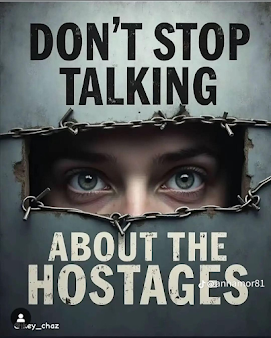


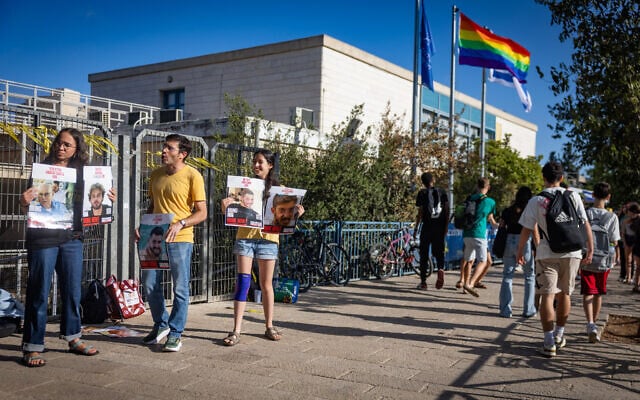








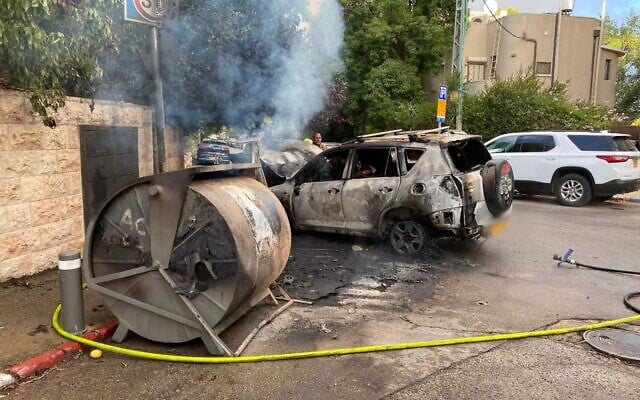
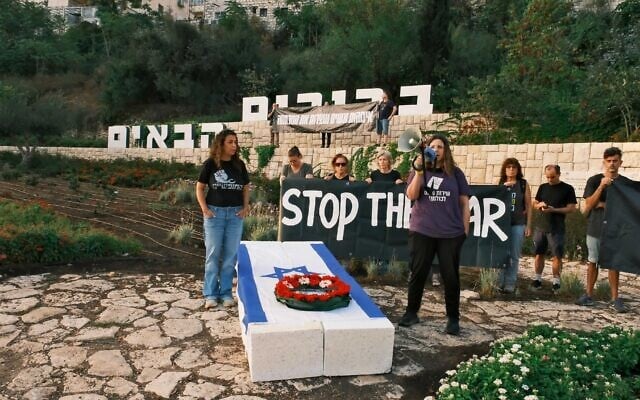




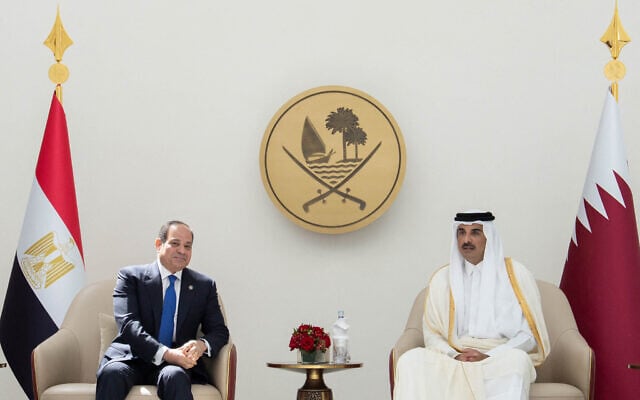
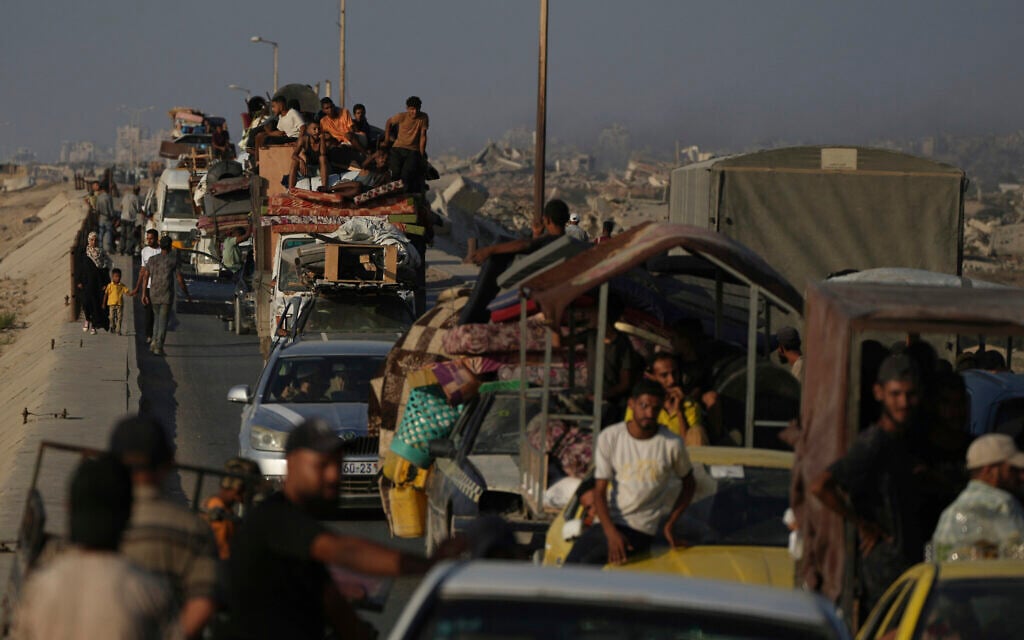
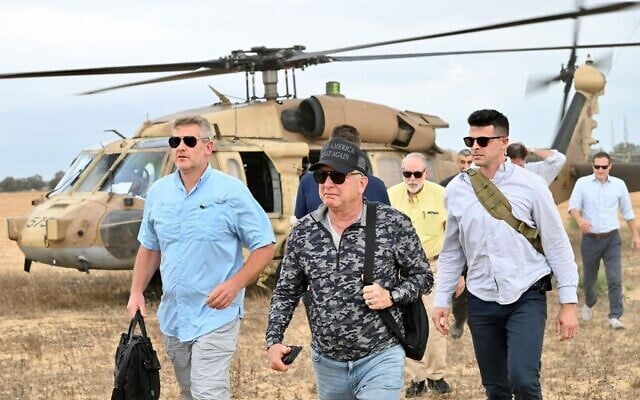
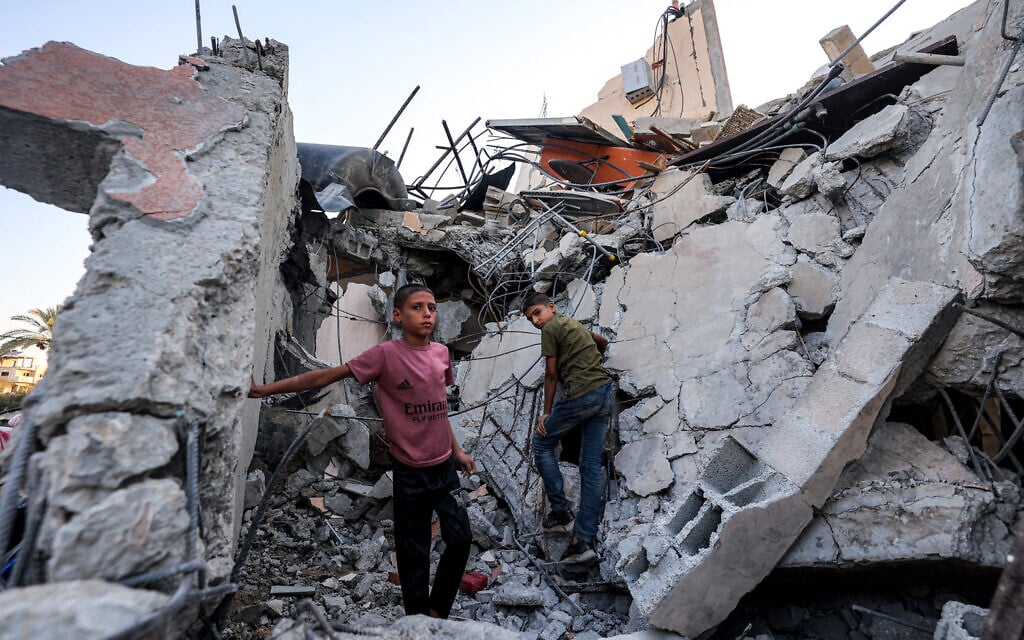
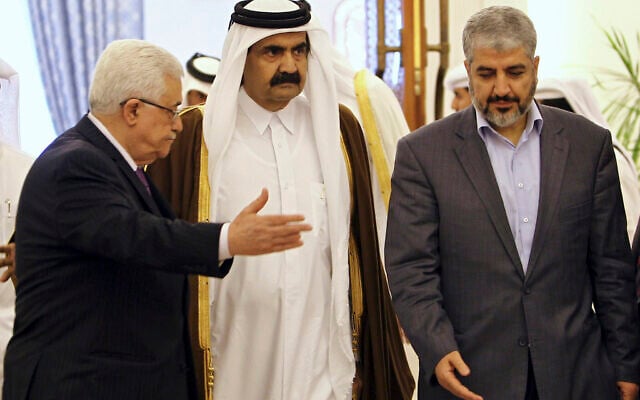
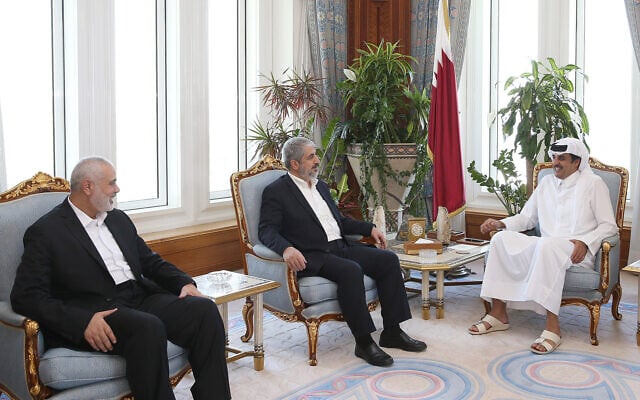
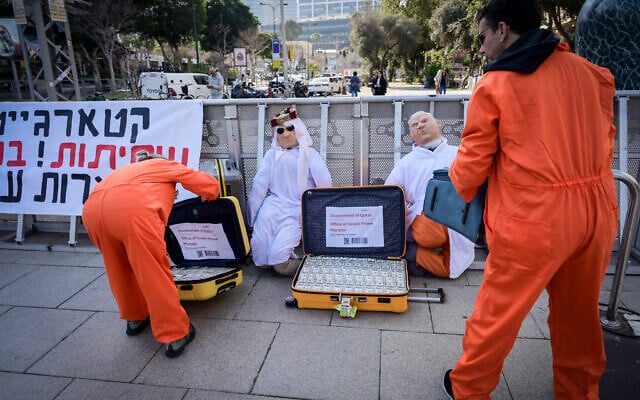
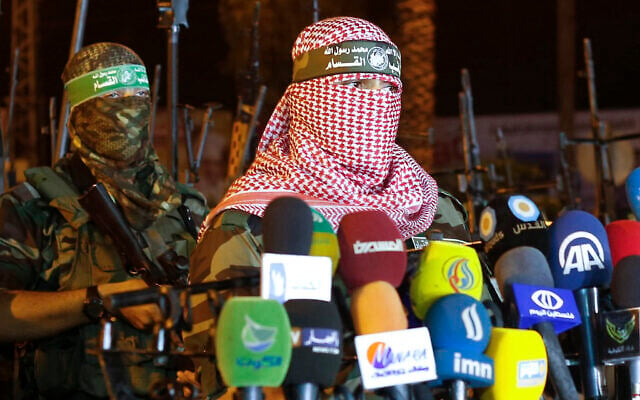

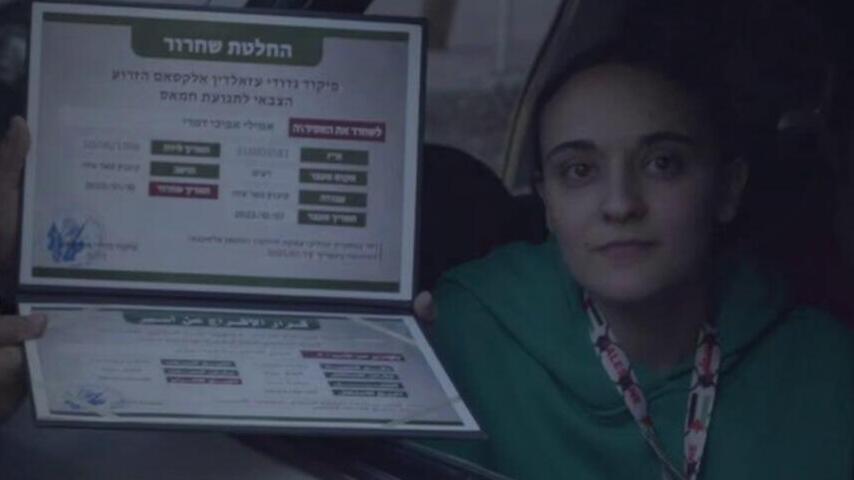


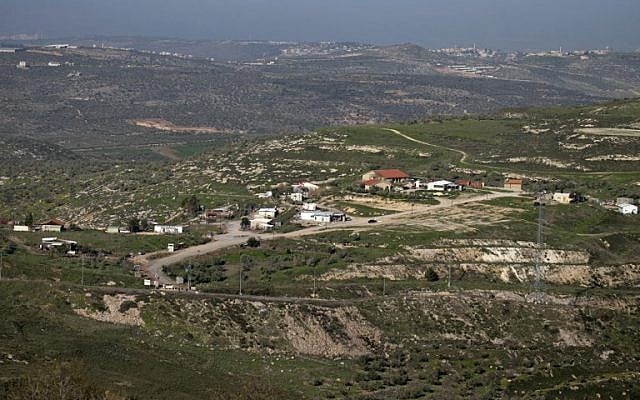




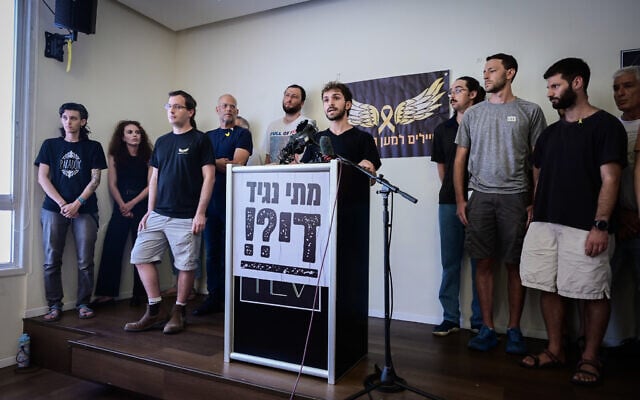











Comments
Post a Comment